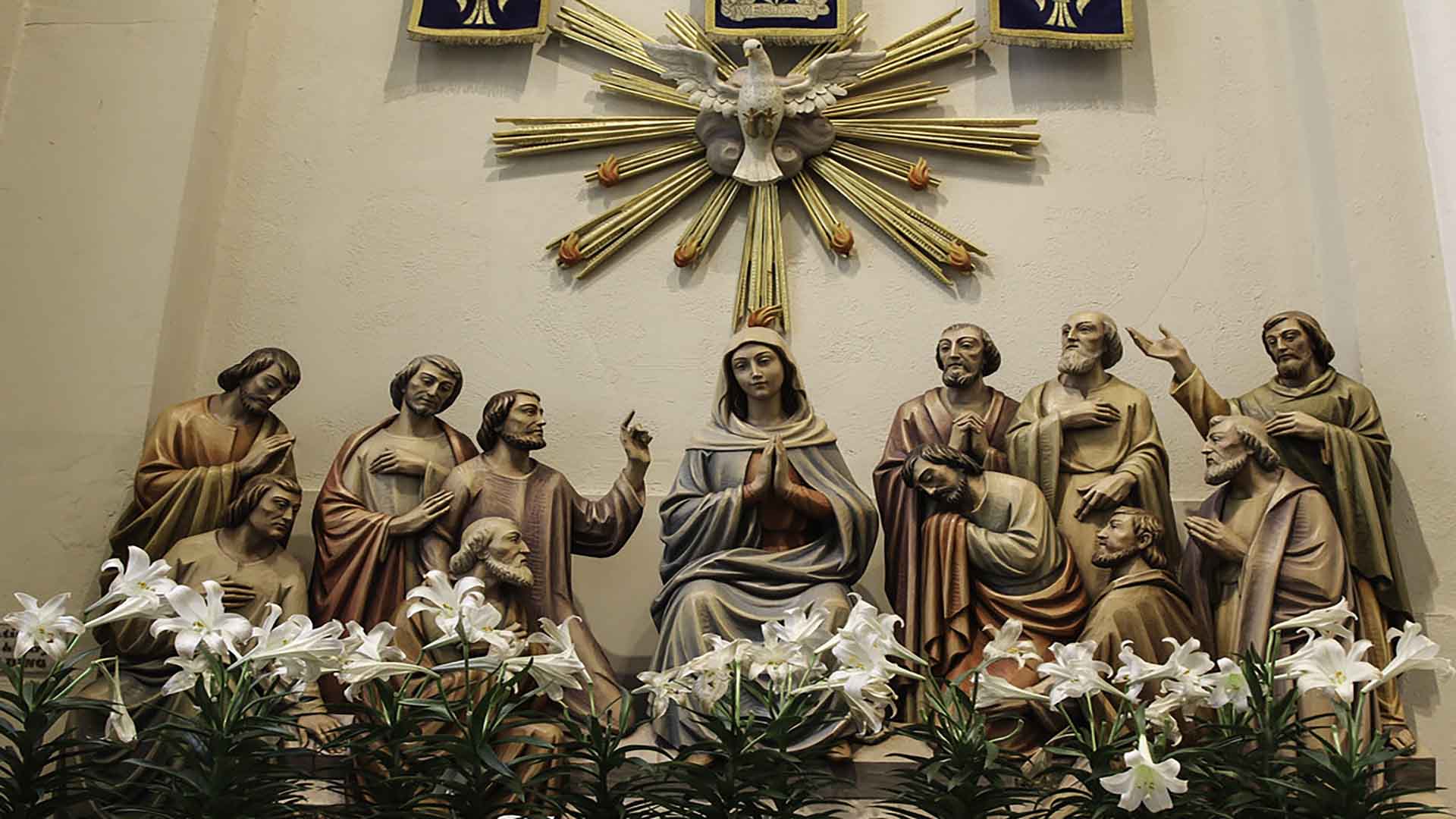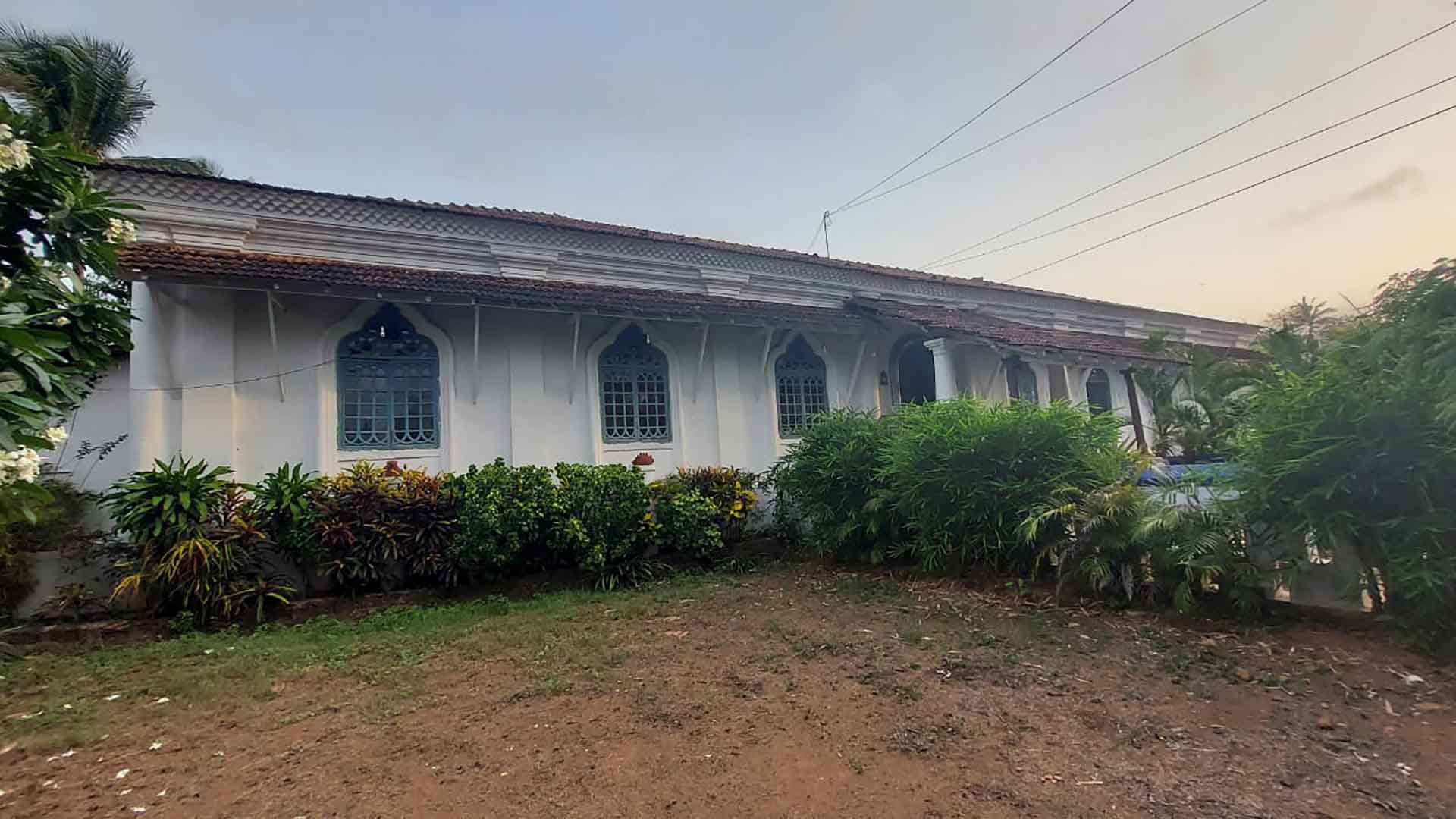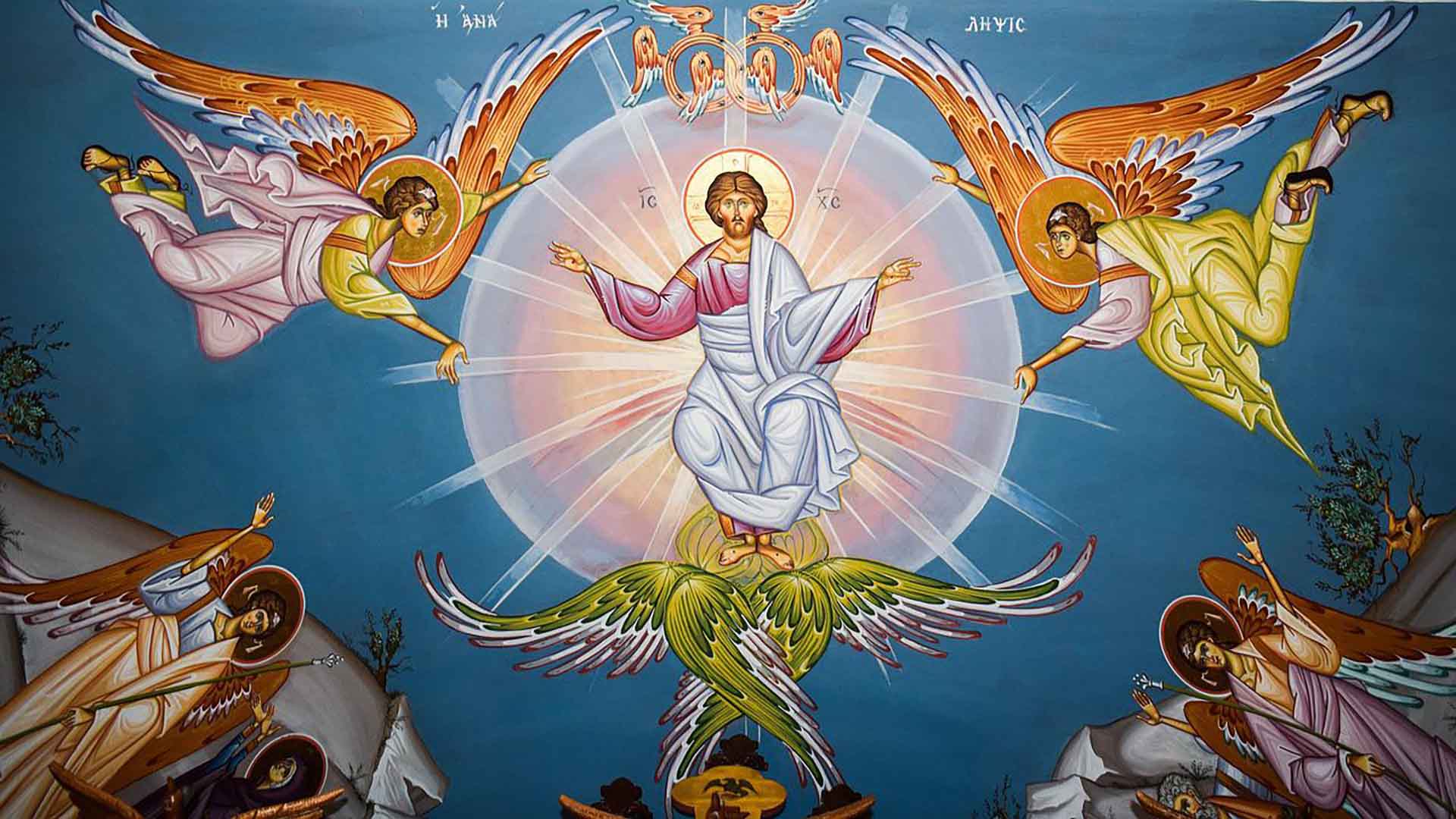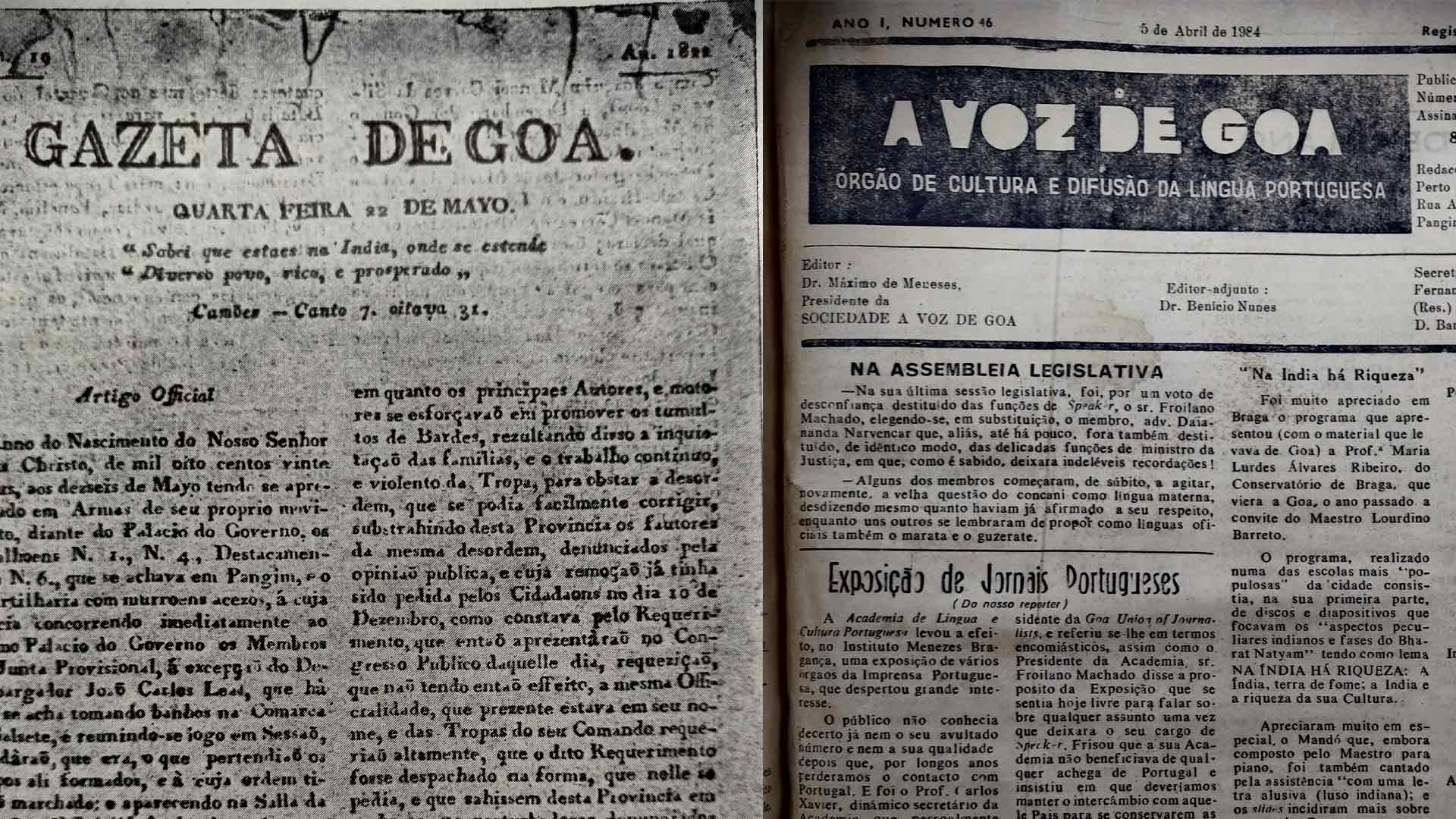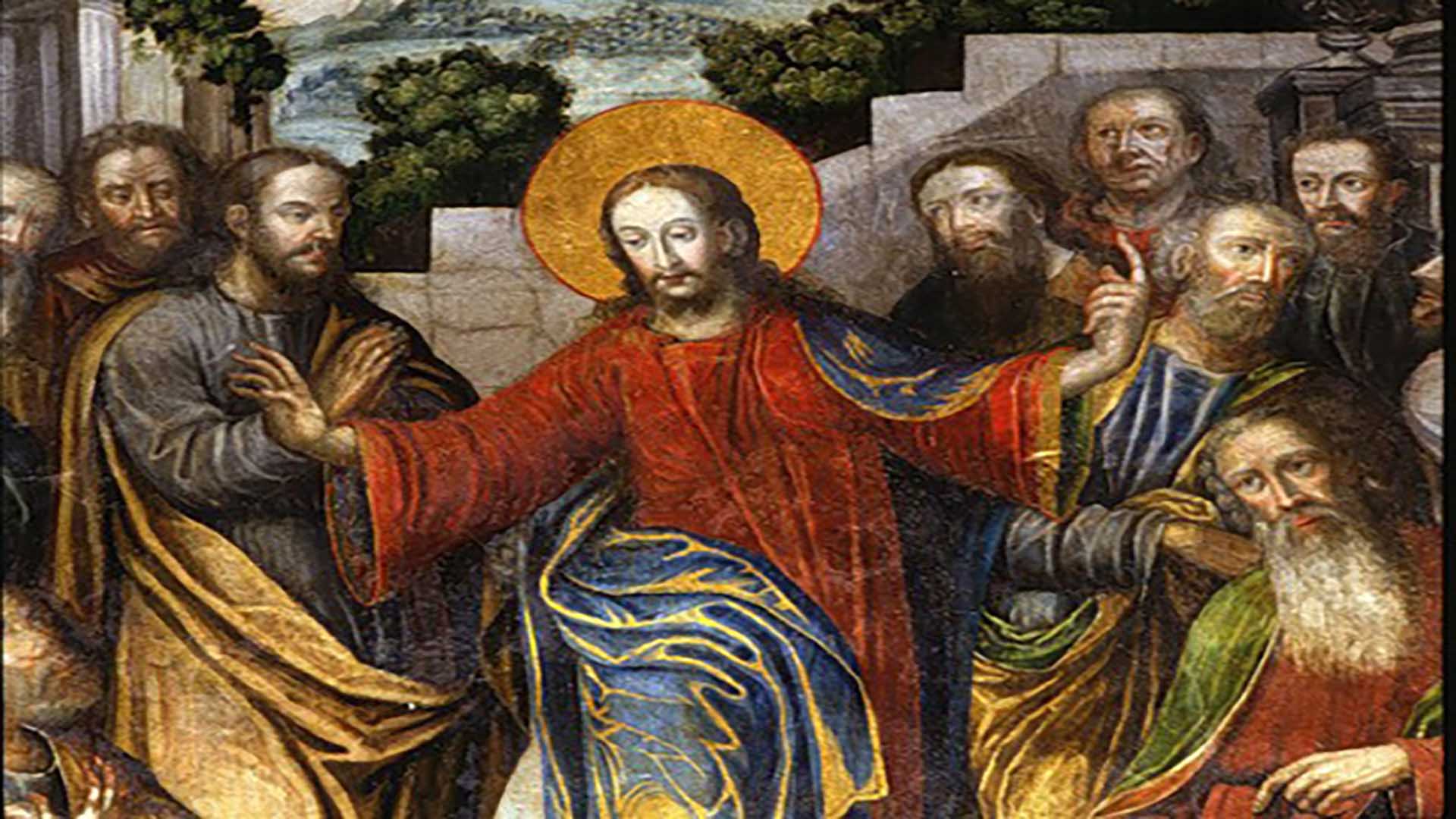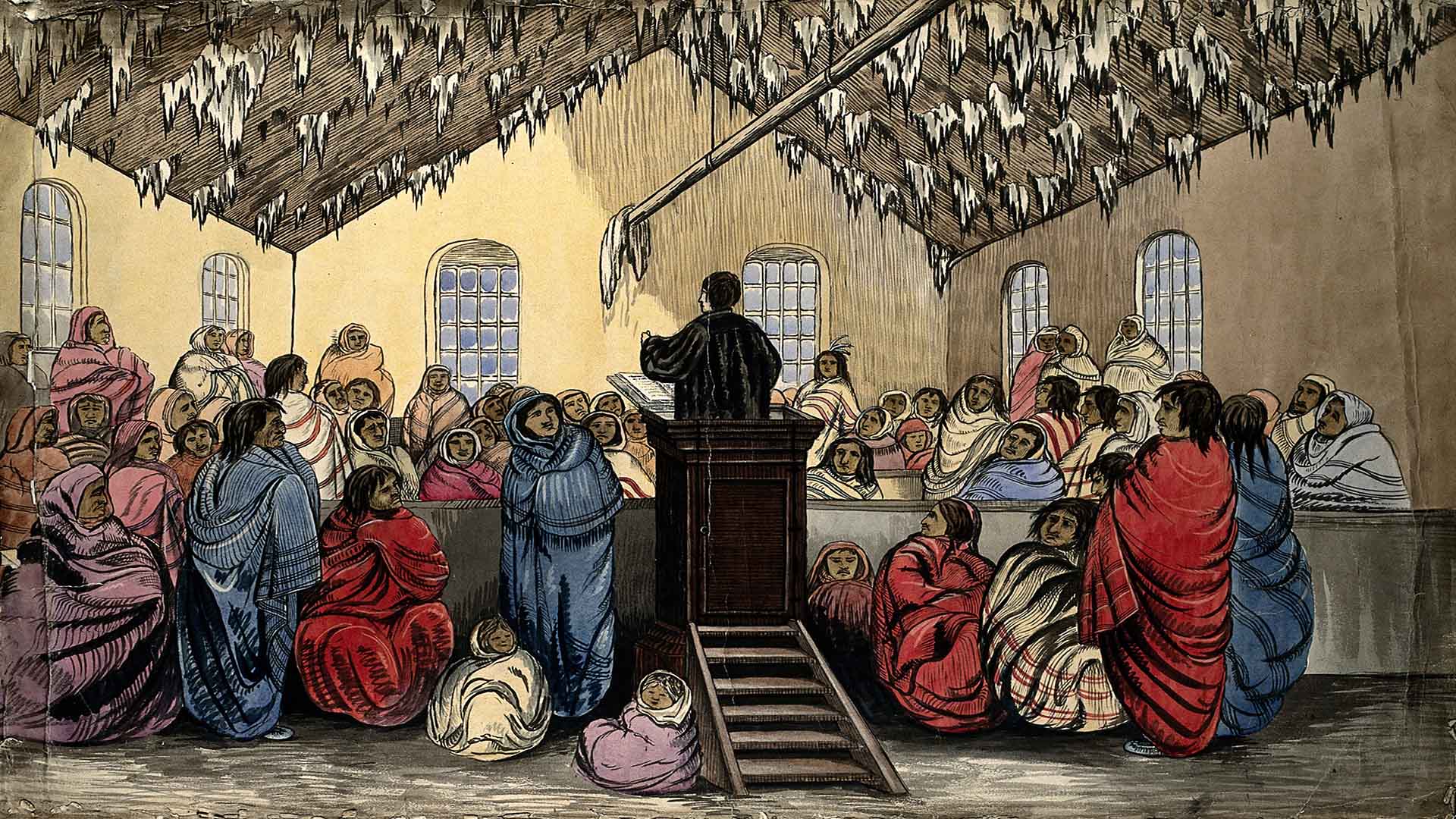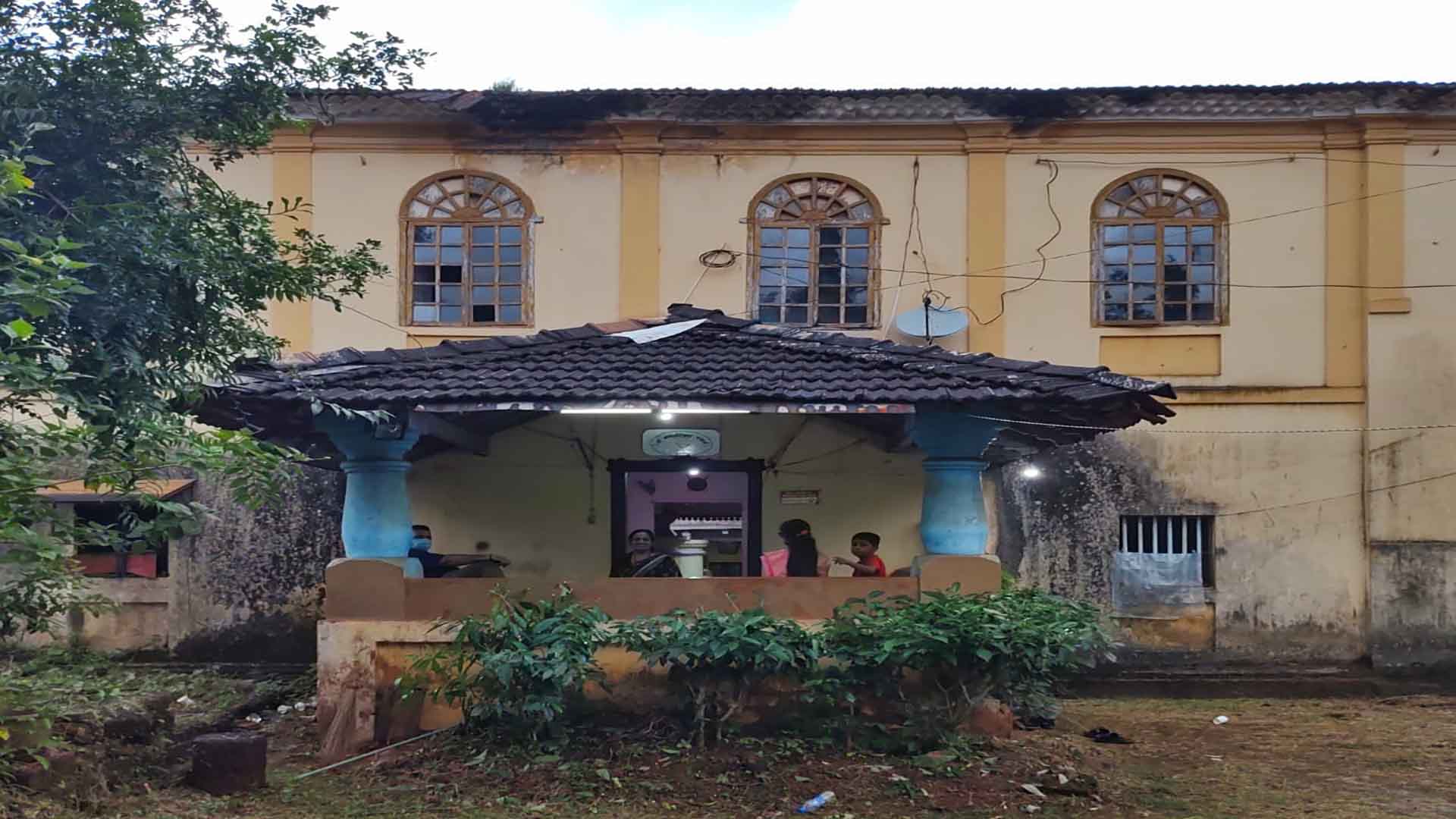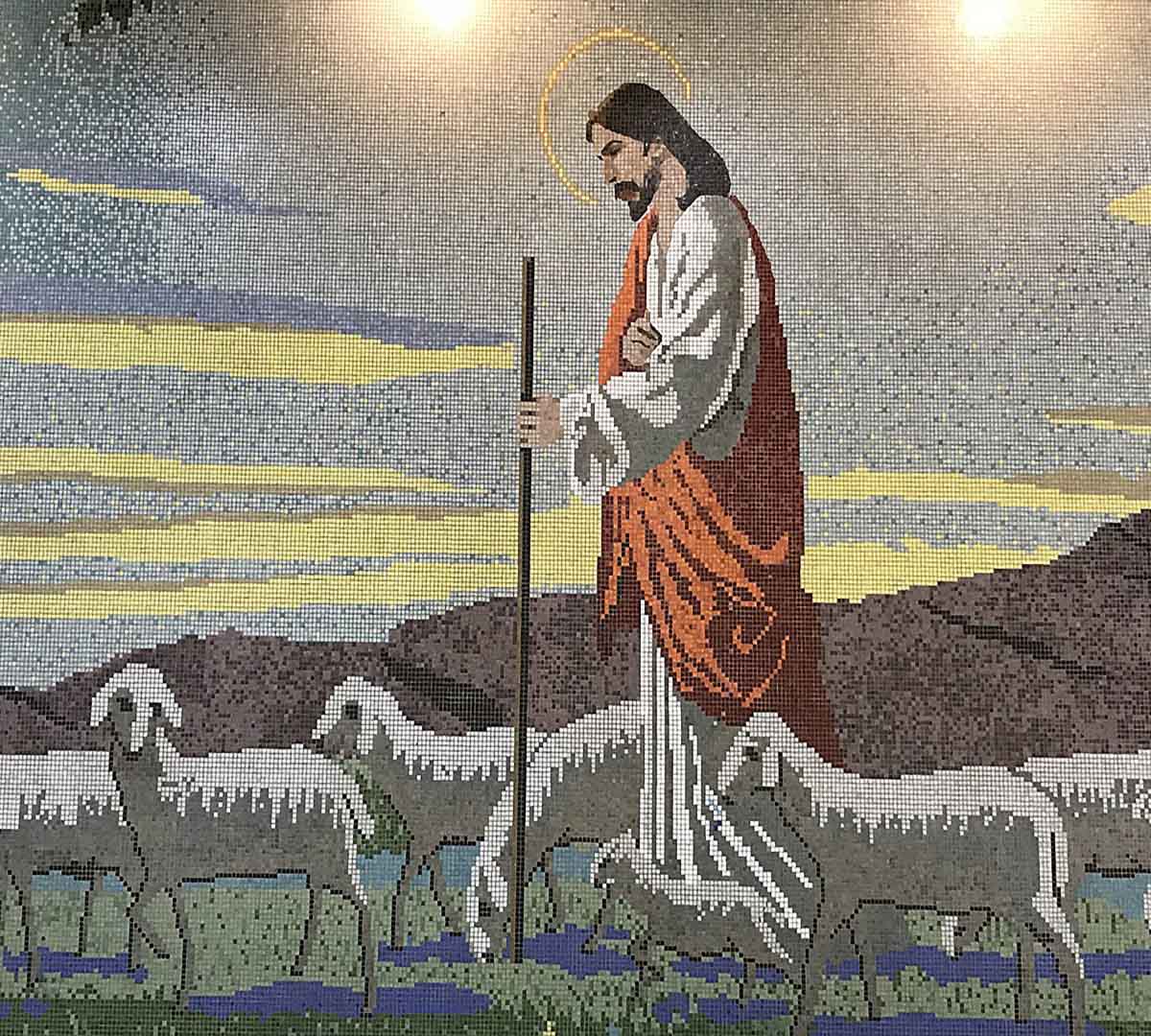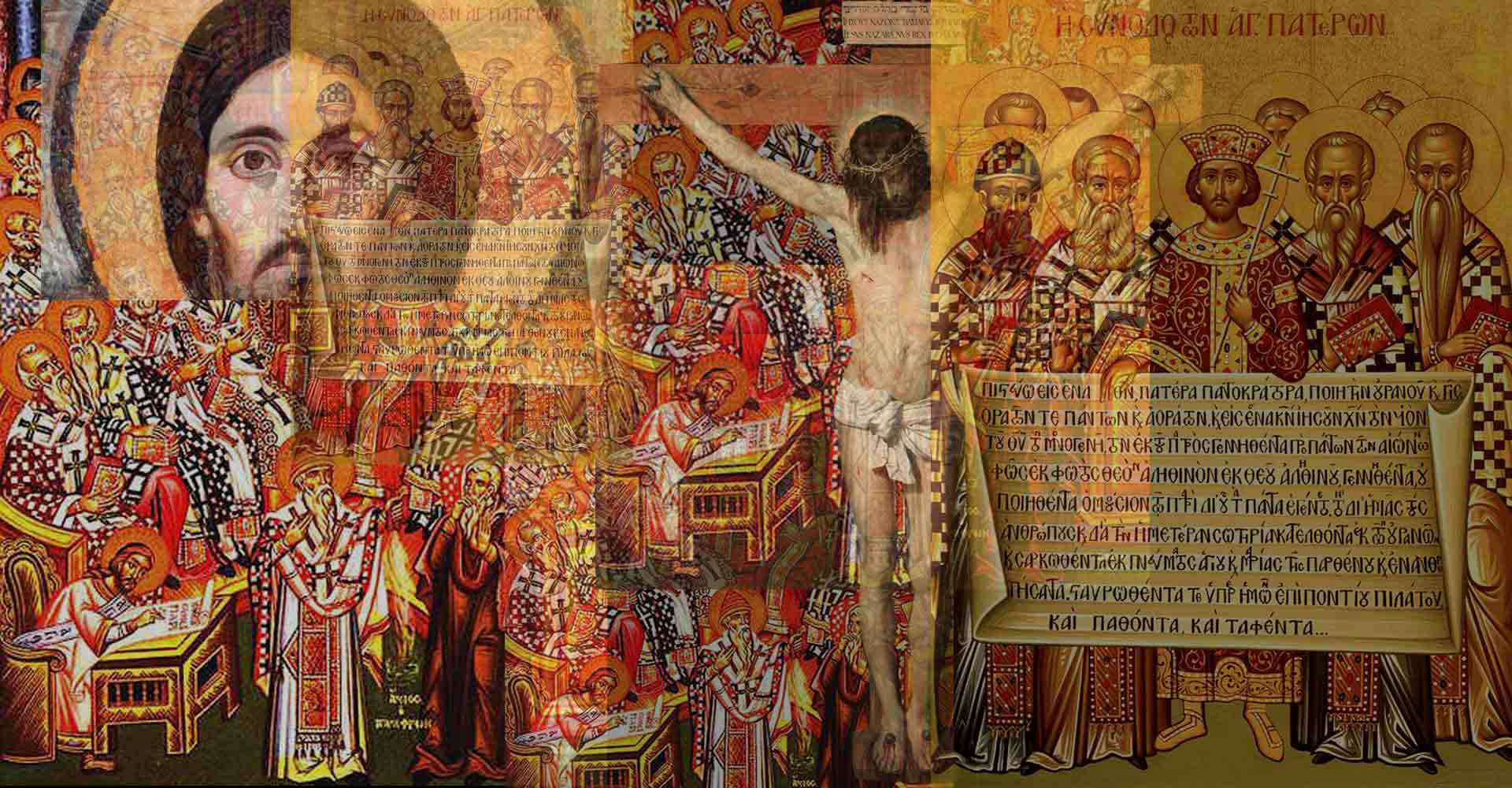Discovery of God
On Pentecost Sunday, we gladly encountered the Holy Spirit. Now it is only natural that the Most Holy Trinity should be in full view. This is the Solemnity we celebrate today.
It may come as a surprise to many that it is not the Incarnation, nor even the Resurrection, but the Holy Trinity that is Christianity’s central mystery, from which flow all the other mysteries of our faith. It is a mystery that has existed since the beginning of times but has unfolded only gradually.
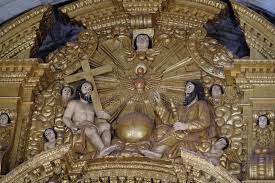
For instance, the Old Testament has references to the Three Persons but stops short of stating a Trinitarian doctrine. In the New Testament, Jesus pointed to His Father who loves us and desires our salvation; He presented Himself, the Son, as the Way, the Truth and the Life; and, before His departure from the world, He announced that the Holy Spirit would reside in our souls as a Guest. Yet, a doctrine of the Triune God was far from clear and remains to date just that: a mystery, a belief beyond our ability to understand unless God bares it to us.
None can deny, however, that the Trinity has been progressively revealed to humankind down the ages. It was not disclosed all at once, not only because of the finiteness of human minds, but because God patiently waits for us to exercise our freedom and come forward to learn about the intimate life of God. It is never an imposition; it is rather an invitation to establish personal ties with the three divine Persons.
That is what happened after Jesus. The early Christians felt it necessary to decode the Risen Lord’s instruction to make disciples of all nations, baptising them ‘in the name of the Father and of the Son and of the Holy Spirit’. They also pondered St Paul’s blessing – ‘The grace of Our Lord Jesus Christ and the love of God and the fellowship of the Holy Spirit be with you all’ – now recited in the introductory rites of the Holy Mass. By and by, Biblical references to Father, Son and Holy Spirit were put together as a cohesive doctrine.
In spite of all that welcome research, the Holy Trinity remains the most difficult theme of our faith. Today’s Readings bear it out: they give only a glimpse, not a precise understanding of the mystery.
In the First Reading (Prov 8:22-31), we hear Wisdom rather than God the Father speak. Anyway, God – who has defined Himself as ‘I am who I am’ – is Himself Wisdom, and is it not more graceful to be introduced by another than to introduce oneself? So, it is age-old Wisdom presenting the Eternal Father to us. More importantly, we learn how He is not a distant God but One who delights in communicating with humankind.
In the Second Reading (Rom 5:1-5), St Paul talks of the Second Person of the Holy Trinity, who gives us peace that no other can give. He also refers to the Father in whose glory we can hope to share by the merits of His Son’s Death. However, this supreme sacrifice has not eliminated human suffering from the face of the earth. The Apostle of the Gentiles urges us, therefore, to rejoice, for indeed, suffering produces endurance, character, and finally the hope of receiving a priceless grace: total communion with God.
In the Gospel (Jn 16:12-15), Jesus introduces to us the Holy Spirit, to whom He has entrusted the continuation of His mission till the end of times. The Son of God says, ‘I have yet many things to say to you, but you cannot bear them now’; He leaves it to the Spirit of Truth to make things clear to those who yearn for the truth. And, whereas many things may forever remain a mystery, it behoves us to keep exploring that which has been revealed. At any rate, we who are created in the image and likeness of God have an infused knowledge and intuitively commune with the divine Family of Three.
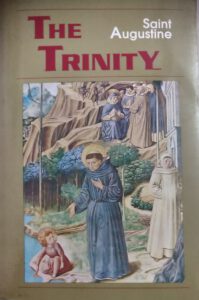 What is the significance of today’s Solemnity? It reinforces our understanding of the Trinity. Our baptismal entry into this divine community deepens every time we gather around the Eucharistic Table. Today’s Liturgy is set to make us passionate about discovering our God. Our God is not a solitary Being lost in the dark and infinite space but a communitarian God of life and love, a model for the human family.
What is the significance of today’s Solemnity? It reinforces our understanding of the Trinity. Our baptismal entry into this divine community deepens every time we gather around the Eucharistic Table. Today’s Liturgy is set to make us passionate about discovering our God. Our God is not a solitary Being lost in the dark and infinite space but a communitarian God of life and love, a model for the human family.
No minds however great and no words however eloquent will adequately express this most complex of all Christian concepts and doctrines. The most popular story illustrating this fact is taken from thirteenth century Italian Dominican Jacobus de Voragine’s Legenda Aurea. Accordingly, St Augustine was walking by the shore, meditating on the problem of how God could be three Persons all at once, when he notices a little child scooping water from the sea into a small hole he had dug in the sand. When asked what he was doing, the child answered: ‘I’m emptying the sea into this hole.’ ‘What! The sea is too large for the hole,’ retorted Augustine. And pat came the child’s reply: ‘Indeed. But it is easier for me to empty the sea into this hole than it is for you to grasp the mystery of the Holy Trinity.’
At the time, St Augustine was working on De Trinitate (On the Trinity). He completed it, although not to his heart’s content, but never stopped discovering our many-splendoured God. Shouldn’t we take a leaf out of his book?
Ecstatic and fiery at Pentecost
After the Ascent came the Descent. Jesus ascended to the Father on the fortieth day after Easter; ten days later He sent forth His Spirit upon the Apostles, Mary, and other followers of Jesus, about 120 of them who had huddled up at the Cenacle in Jerusalem, for fear of the Jews. They had been continually praying for nine days since the Ascension. (Note that this marvellous event led to the idea of a novena as days of prayer leading up to a feast; and, in particular, the Novena to the Holy Spirit in the run-up to the Pentecost).
How delightful it must have been! That morning, God had timed the descent of the Holy Spirit to coincide with Shavuoth (Acts 2:1–31), which traditionally heralded the wheat harvest. In time, Shavuoth came to mean the seven weeks since the Passover; it was finally replaced by ‘Pentecost’ (from the Greek word pentēkostē, '50th'), which comprises the dramatic arrival of the Holy Spirit, as noted in the First Reading (Acts 2: 1-11). A sound from Heaven, like the rush of a mighty wind, filled all the house. Interestingly, spirit means both ‘breath’ and ‘wind’ in the Hebrew culture!
Even more striking were the tongues ‘as of fire’ that came to rest on each one of those Galilean disciples. Thus ‘ignited’, they began to speak in foreign lingoes, to the bewilderment of the motley crowd from every nation under the sun, who had gathered there on the occasion of the Jewish festival. That is the miracle of Pentecost, which indicates that God wishes to be followed and praised by people from every land and clime – unlike Jewish converts of old who had to promptly renounce their native language and culture.
The Second Reading (Cor 12: 3-7, 12-13) speaks of how the disciples built the Church. As St Paul says, ‘To each is given the manifestation of the Spirit for the common good... For by one Spirit we were all baptised into one body – Jews or Greeks, slaves or free – and all were made to drink of one Spirit.’ That is to say, Christians contribute their time and talent for the benefit of the community.
In the day’s Gospel (Jn 20: 19-23), the Holy Spirit gives the apostles gifts and fruits necessary to fulfil the great commission of going out, preaching the Good News of Salvation and being the light to all nations. The power to forgive sins is the greatest gift to the Church, which is never free from sinners.
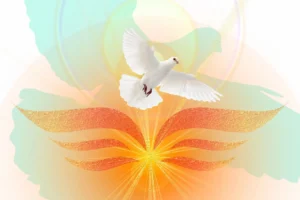 The Church thus built is the ‘Mystical Body of Christ’, mystical because, in Fulton Sheen’s words, ‘this Body is not physical like a man, nor moral like a bridge club, but heavenly and spiritual because of the Spirit which made it one.’ That it is ‘Christ’s prolonged Self’ can be proved from the Voice from Heaven that said, ‘Saul, Saul, why do you persecute me?’ ‘When the Body of Christ was persecuted, it was Christ the Invisible Head Who arose to speak and to protest,’ writes Sheen in his Life of Christ.
The Church thus built is the ‘Mystical Body of Christ’, mystical because, in Fulton Sheen’s words, ‘this Body is not physical like a man, nor moral like a bridge club, but heavenly and spiritual because of the Spirit which made it one.’ That it is ‘Christ’s prolonged Self’ can be proved from the Voice from Heaven that said, ‘Saul, Saul, why do you persecute me?’ ‘When the Body of Christ was persecuted, it was Christ the Invisible Head Who arose to speak and to protest,’ writes Sheen in his Life of Christ.
Can there be any doubt that the Church born at Pentecost is the Church we belong to? She enjoys four distinctive marks of life: unity; catholicity; holiness; and apostolicity. The Church is animated by one Spirit; she absorbs and redeems humanity without distinction of race or colour; she is holy as a whole, even if her individual members are diseased; she is apostolic, because she took roots in Christ and her ministry derived from the apostles by a continuous succession.
The deeper significance of Pentecost is that Jesus, who once ‘emptied Himself, by taking the form of a servant, being born in the likeness of men’, thereby received His fullness and was glorified. He now lives, teaches, governs and sanctifies us, better than He did in Judea and Galilee – for, as Son of God seated at the right hand of the Father in Heaven, He can reach out to the whole world better than He could when He walked the earth as Son of Man.
Pentecost was an important event in the history of the primitive church and continues to be so in our own times too. After Peter preached his first homily to the Jews and others, showing how Joel had prophesied the coming of the Holy Spirit, about 3,000 people – cut to the heart by the Crucifixion and enthused by the Resurrection of Our Lord – asked for baptism. Within a few decades important congregations were established in major cities of the Roman Empire. It is not difficult to understand how, centuries ago, our own ancestors, attracted by the Mystical Body, the Bride of Christ, converted to the Christian faith.
What about today? The stronger our adherence to the Church, the quicker will be the spread of Christianity. Can we imagine ourselves being born outside the Church? No. Let us, then, honour the glorious birthday of the official Church. It is a gentle movement of hearts that still brings together people formerly separated by languages, cultures, races and nations, and will culminate in the Second Coming of Christ. Let’s commit ourselves to putting our lamps on a high stand such that it shines upon all that are in the house. Reaching out to people from the seven corners of the world is a continual challenge. Let’s be ablaze with love of God and neighbour, and pray, ‘Send us, O Lord, your Spirit, and renew the face of the earth!’
Mudança... unforgettable vacation in Goa!
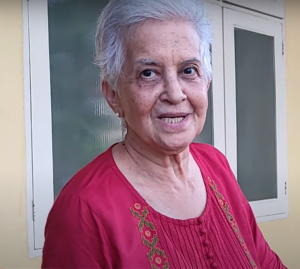 SATYÁ DA COSTA FERREIRA, who lives in Miramar, Panjim, Goa, fondly remembers the days that her family spent at Bogmaló beach in the taluka of Mormugão.
SATYÁ DA COSTA FERREIRA, who lives in Miramar, Panjim, Goa, fondly remembers the days that her family spent at Bogmaló beach in the taluka of Mormugão.
As I was talking to Óscar on the phone, we spoke about vacations, especially the type of vacations we had in the past….
We were a large family and studied at Liceu Nacional Afonso de Albuquerque in Panjim. After our classes and exams, we would go with our parents to our ancestral home, in Loutulim, and from there, after a few days, to Bogmaló, where we would spend about two and a half months.
 In Bogmaló, life was different. We children went to the beach and our parents and aunts, who were there with us, had other tasks. In Bogmaló, our family had an estate with palm trees and, so we took advantage of this vacation time to have coconut tree plucking. In the initial days of the plucking – particularly on the first day – our father took me and my older sisters along – they were three and six years older than me – to see, to learn how they did it. He then asked us to make a note of the number of coconuts, on a palm leaf, in Roman numerals. I liked these walks with my father, but I was simply too afraid to cross the different parts of the estate on trunks of coconut trees: they were trunk slits placed on either side; and I was always too afraid to cross them.
In Bogmaló, life was different. We children went to the beach and our parents and aunts, who were there with us, had other tasks. In Bogmaló, our family had an estate with palm trees and, so we took advantage of this vacation time to have coconut tree plucking. In the initial days of the plucking – particularly on the first day – our father took me and my older sisters along – they were three and six years older than me – to see, to learn how they did it. He then asked us to make a note of the number of coconuts, on a palm leaf, in Roman numerals. I liked these walks with my father, but I was simply too afraid to cross the different parts of the estate on trunks of coconut trees: they were trunk slits placed on either side; and I was always too afraid to cross them.
In Bogmaló, people basically had two professions: one was the production of palm wine and the other was fishing. So, in each house, they all had a still [piece of equipment used to make strong alcoholic drinks by a process called distilling], and early in the morning, at noon and in the evening, the tenants came there, to climb the coconut trees that they had taken on lease from the owners. And we really liked to see the men climbing the coconut trees with great agility.
Their other profession was fishing. Our house was located on the beach, and on certain days there was a lot of commotion on the beach when fishermen cast their nets. There could be anything like 10, 20 or 30 fishermen. And what we liked was to see them pulling nets loaded with fish: what variety and what abundance!
 Often, we were very sorry that we didn't have anyone to play with us on the beach, no other children of our age to play: it was just the aunts and us, three sisters, on the beach... Today, when I go to Bogmaló there isn’t even a spot where I can be all by myself – there simply isn't!
Often, we were very sorry that we didn't have anyone to play with us on the beach, no other children of our age to play: it was just the aunts and us, three sisters, on the beach... Today, when I go to Bogmaló there isn’t even a spot where I can be all by myself – there simply isn't!
At home, the aunts and Mother kept busy with other tasks: one of them was making broomsticks for brooms to be used all year round. The other occupation there was to watch the labourers dehusk coconuts. These were later taken to the village, to Loutulim, where oil was extracted. And I greatly admired the ease and agility with which they peeled hundreds of coconuts.
What else did they do? They made a provision of salted fish in Bogmaló, and it was stored for the monsoon, when there was a shortage of fish.
Now, on the beach, we children played in the sand and in the water, and the aunts bathed in the sea water. It was thought at that time that a bath in the sea would prevent typical monsoon ailments in the elderly.
And that is how the two and a half months passed and we returned home in the same way to get ready to resume our classes in Panjim. Those were our vacations and our mudanças!
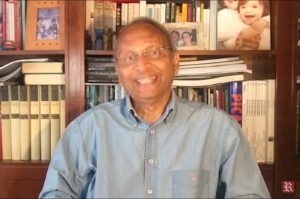 JOSÉ FILIPE MONTEIRO, who lives in Lisbon, recalls the spots where he spent his vacations with family and friends in the talukas (concelhos) of Ilhas and Salcete, Goa.
JOSÉ FILIPE MONTEIRO, who lives in Lisbon, recalls the spots where he spent his vacations with family and friends in the talukas (concelhos) of Ilhas and Salcete, Goa.
It is with great pleasure that I send this statement to your Renascença programme.
You asked me to talk about mudanças – vacations – and, really, this is a very grateful memory: after all, recordar é viver, to remember is to live, or as I usually say, we are our memory!
Mudanças! Holidays, or vilegiatura, vacationing, as we used to say in Goa – and even the newspapers carried the news of where we went on a mudança or this vacation.
Classes in Goa ended in February, and in March we had the exams. April and May were the summer vacation months par excellence.
And what did this mudança imply? It meant leaving Panjim city and spend a few weeks on a beach closeby. In Panjim, that could be Caranzalém beach, or Calangute. It was rarer for us, residents of Panjim, to go on vacation to Colvá beach or to a beach in Salcete. And I remember that, for this small distance of 3 or 4 km, we even took along some furniture; but it was very interesting.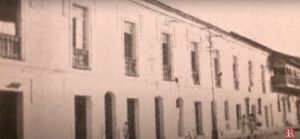
I remember with great nostalgia one o f the vacations I spent in Caranzalém. We had a Portuguese soldier as a neighbour who, after all, was trying to teach me how to swim. Of course, it was more about diving and drinking lots of sea water!
I also remember fondly my trips to my paternal grandparents' house: from there we would go to Velção beach. This meant going in a van, with all the cousins.
But the most interesting thing about these vacations, these long holidays, was that we went in droves looking for wild fruits; it was our meeting with cousins; and then we sat at the big, long dinner table.
Anyway, one of the typical things about Goa were these mudanças, these vacations, which I think were a mark of a society – I wouldn't say that it was the whole of society could change – there were a few, more privileged, who had the financial capacity to make these changes.
But, anyway, I think you do very well to remember those moments that were part of our entire past. I think that nowadays things don't work the same way.
 IVETE SILVEIRA BARRETO, who lives on the picturesque island of Divar, Goa, speaks of vacations spent in São Matias, Benaulim and Calangute, in Ilhas, Salcete and Bardez talukas, respectively.
IVETE SILVEIRA BARRETO, who lives on the picturesque island of Divar, Goa, speaks of vacations spent in São Matias, Benaulim and Calangute, in Ilhas, Salcete and Bardez talukas, respectively.
I have fond and vivid memories of my childhood and teenage days, especially of the great enthusiasm with which we prepared and went for the so-called ‘Mudança’ (holidays), in the months of May and October.
When I was a child our mudança used to be at my paternal grandparents’ house in São Matias, on the island of Divar, or at my maternal grandparents’ house at Bairro Povoação, close to the Monte in Benaulim.
To go to Divar, we had to travel by lancha (launch) or the so-called gasolina (a mechanised boat) which carried around 25 to 30 seated passengers. It used to leave from the dock at Navegação in Panjim and go directly to Vitogem in Divar, where all the passengers would alight. From there we had to walk for around 15 minutes, to reach the house. In the event of missing the gasolina – which happened only rarely – we would have to travel by carreira (bus) from Panjim to Old Goa and get down at the junction, near the post office, and walk to ferry point, through the Viceroys’ Arch. In those days, there was no ferry-boat, so we had to cross the river in a canoe rowed by two boatmen. After crossing over, the walking distance to the house would be two or three times more than from Vitogem, depending on our pace. Somehow, we enjoyed the trip and never felt tired.
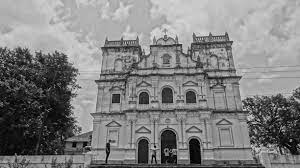
As for the journey to Benaulim, it was also by carreira or bus from Panjim to Margão and another to Colva. We had to get down midway, near the Monte, and walk for just 10 minutes.
Our daily schedule in both these vast and roomy houses was more or less the same.
Breakfast was limited to bread, chapatis or kailoios with butter, cheese, mangada (mango jelly) or guava jelly; the compulsory midmeal, around 11.00 a.m., consisted of pez (canjee) with attoiloli koddi (condensed curry of the previous day), a variety of chutney (pickles) and fruits like mango and jackfruit.
Besides the delicious rice-curry, with tasty river fish and prawns, there was a variety of dishes made with beef, chicken, duck, pigling and pork – from livestock reared at home. In those days, there were no refrigerators and no electrical gadgets. Ingredients were ground on the grinding stone and cooked in earthenware.
Evening tea consisted of a variety of sweet dishes such as ghoddchem, kongeli, orn, xevio, doce bhaji, doce de batata, cocada, bática, and so on – a different one each day. Unfortunately, some of these are neither seen nor heard of nowadays.
As far as amusement was concerned, we had more fun in São Matias, since half a dozen first cousins would also join us for the mudança. Mornings were spent playing games like tikttem, tablas, cruzada, skipping rope, or we would walk around the backyard in search of guavas, rozambadde, jambool. At times, we would go visiting elderly relatives or family friends in the locality.
In the evening, we would go to the Hill in São Matias, or to Monte, when in Benaulim, and join the group of girls and boys from the neighbourhood. After collecting kanddam and charam, it would be games followed up by a sing-song session. But, at the sound of the Angelus bell, we would start moving back home.
Conversations with our grandmothers used to be very informative. They would talk about the family tree and blood relationships; their own life experiences; village stories, and so on.
When I was a teenager, in the mid-sixties, our mudança to Calangute beach in the month of May became an annual feature. My parents would rent a beach house of the local fisherfolk, each time at a different place, for the whole of May. The owners would put up a small thatched room for themselves, behind the house. We had to carry all our requirements, like mattresses, pillows, mats, linen, crockery, cutlery, utensils, and some foodstuff, too.
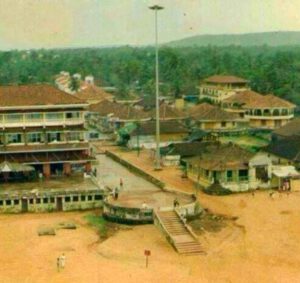 The interesting part of this mudança was the Calangute Saturday market, which had everything, like provisions, earthenware, and even livestock. Among the items we purchased, a pigling costing just Rs 20/- was something exciting to return home with. The pigling would be tied to a bamboo stick carried on the shoulders by two of my brothers. Thus, on Sunday, we could look forward to pigling cabidela or assado.
The interesting part of this mudança was the Calangute Saturday market, which had everything, like provisions, earthenware, and even livestock. Among the items we purchased, a pigling costing just Rs 20/- was something exciting to return home with. The pigling would be tied to a bamboo stick carried on the shoulders by two of my brothers. Thus, on Sunday, we could look forward to pigling cabidela or assado.
Every morning we would go to the beach and buy fresh fish, collect manddoios, shells, and just dip our feet in the water, since we were not allowed to go swimming. At times, we would stroll down to Baga beach.
We would return to the beach in the evening and join large groups of youngsters from different parts of Goa and Bombay, on their mudança. After games like dog-and-the-bone, ‘killing’ with the tennikoit ring, twos-and-threes, handkerchief, and so on, we would relax playing dumb charades, and follow it up with singing Portuguese, English and Konkani songs and medleys, to the accompaniment of one or two guitars.
Although in all those places we only had candlelight, kerosene lamps, and petromax; and had to bathe with well water heated in a big copper vessel called bann, and use the pig toilet, our mudança was always enjoyable, healthy and memorable.
The daily Rosary, followed by blessings from elders, was never missed even at the mudança.
Indeed, the true friendship, fellowship, cooperation, discipline and the immense joy of the mudança is unforgettable!
First published in Revista da Casa de Goa (Lisbon), Series II, No. 16, May-June 2022, pp. 42-45 https://casadegoa.org/revista/ii-serie-n-o-16-maio-junho-de-2022/
Banner pic: Veiga House, Maina, Curtorim, Goa (Pic courtesy: Alint Coelho)
The Ascension Promise
A solemnity and holy day of obligation like the Ascension rightly arouses the curiosity of every believer. The ascent of Jesus Christ body and soul into Heaven, from Mount Olivet, near Jerusalem, on the fortieth day after Easter, was no mean occurrence. Obviously, the why and how of it are hugely more intriguing than the what and where; and eminently worthy of inquiry.
The life of Jesus was a string of sacred mysteries. The Incarnation was the first and the Ascension the last of them all. The latter was immediately preceded by and intimately related to the Resurrection. It marked the ultimate exaltation and glorification of Jesus by the Father in Heaven, who, (humanly speaking) seating Him at His right hand, made Him the centre of world history and controller of all earthly and celestial dominions.
How did the Ascension of Jesus come about? Jesus led his disciples to the Mount, and soon after He had addressed them, raised His hands and blessed them, ‘He was lifted up while they looked on, and a cloud took Him from their sight.’ How did the disciples react? They did Him homage, returned to Jerusalem with great joy, and stayed in the temple praising God. While Jesus’ A scension was similar to that of Elijah, Jewish tradition also points to the ascension of Abraham, Moses, and Isaiah.
scension was similar to that of Elijah, Jewish tradition also points to the ascension of Abraham, Moses, and Isaiah.
However, who can deny that in our day and age the Ascension seems truly fantastic and begs an explanation! How are we to understand something that defies the laws of gravity? First of all, it was a happening that the eleven disciples witnessed and the Evangelists have recorded. Besides, it is not any more difficult to accept the mystery of the Ascension than that of the Resurrection. After all, God who has made the natural laws can also tweak them to assert His supremacy and have His children acknowledge it.
But that is by no means the only reason why God deemed it fit to realise the Ascension. After Jesus had very credibly upheld His claim of rebuilding the ‘Temple’ in three days, He lived amidst His disciples for forty days (important Biblical figure, denoting a new, enlivening period) giving ample proof that the Son of God was alive. That he was asked by the disciples, very prosaically indeed, if He had returned to restore the kingdom to Israel was ample proof that until then the disciples had not understood the Lord’s earthly mission!
Hence, Jesus undertook to re-educate the disciples about the kingdom of God. Would He succeed in doing in forty days what He had failed to accomplish through his three-year ministry? It may be noted that the forty-day period was only an orientation on how to carry out the evangelising mission. Jesus gave out laws, prepared the structure for His Mystical Body, the Church, and announced that the Holy Spirit would come to help the disciples carry out His ongoing mission.
Why did He not extend His tenure on earth instead of entrusting the missionary task to the Holy Spirit? For one, that was not why Jesus had come down to earth -- He had not come to stay, so it was proper that He should return to the Father. Secondly, as Son of Man, he would be subject to the natural laws that governed human life, including aging and death. Finally, and most importantly, by returning to Heaven, Jesus could better guide the Church and His faithful people the world over, through the action of the Holy Spirit. Hence, to grasp and understand the importance of the return of Jesus to Heaven, Paul prays that the 'eyes of our heart be enlightened'.
In short, the Ascension marks both the end of Jesus' earthly tenure and the beginning of His deep involvement with His people on earth. He who had come down with trappings of poverty entered into the world of glory, and is closer to us than ever before. What is more, His exaltation and glorification are a promise that we too will be exalted and glorified after we have united ourselves to Jesus’ suffering and shown readiness to be part of God’s plan of Salvation.
Note that the Solemnity of the Ascension falls on Thursday, but it is celebrated on the Sunday closest to that day. The First Reading (Acts 1: 1-11) and the Second Reading (Eph 1: 17-23 or Heb 9: 24-28, 10: 19-23) with psalm and acclamation are common for Years A, B and C. The Gospel for this year (Year C) is Lk 24: 46-53.
Da Gazeta à Voz: 163 anos do jornalismo da língua portuguesa em Goa
May 25, 2022History of Goa,Press
A chegada fortuita da máquina tipográfica a Goa, no ano de 1556, foi um marco importante na vida do território indo-português. Com essa tipografia de tipos móveis, a primeira do seu género na Ásia, a capital do império português oriental tornou-se um centro publicitário. Não tem explicação, porém, a ausência de obras impressas durante vários períodos, sendo talvez o mais gritante de todos o silêncio de 67 anos, provocado pelo encerramento das tipografias em Goa, em 1754, por ordem do Governo pombalino, que se prezava de liberal: uma longa e curiosa história[1] que fica fora do âmbito deste escrito. Depois, voltando à actividade, Goa permaneceu como centro promotor da cultura luso-indiana até o fim da presença portuguesa na Índia, em 1961, enquanto o jornalismo exercido nesse idioma gozou dum acréscimo de um quarto de século.
Primeiro periódico
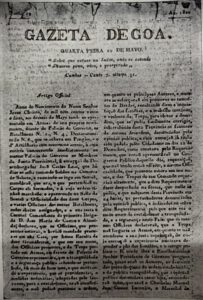
O raiar do Constitucionalismo[2] quebrou aquele silêncio desolador. Em 22 de dezembro de 1821, saía da Oficina Tipográfica do Governo, instalada no rés-do-chão do Palácio do Idalcão (cujo primeiro piso era a residência oficial do Vice-rei da Índia), o primeiro jornal da Índia Portuguesa: Gazeta de Goa (Figura 1). Era redactor António José de Lima Leitão, físico-mor e intendente-geral da agricultura da Índia, que teve papel preponderante na implantação do regime liberal no território.
Semanário, de formato pequeno, a Gazeta deveria conter ‘as deliberações do Governo, o cadastro mensal da receita e despesa do tesouro público, do Senado da Câmara, da Santa Casa da Misericórdia, e outras notícias nacionais e estrangeiras’.[3] Mas não ficou por aí: além de noticioso, foi ideológico e até faccioso. Dava à estampa só cartas assinadas, o que obrigava os signatários a assumir a responsabilidade das suas afirmações. Na capital, a Gazeta era distribuída pelo correio, e fora dela, por particulares – tal o entusiasmo com que era recebido o periódico oficial.
No entanto, a tipografia estatal foi pasto para intrigas, pois, por razões de viabilidade económica, vinha publicando panfletos de autoria de particulares, a versar controvérsias militares e clericais.[4] Agravou-se a situação após a saída de Lima Leitão, que redigiu o boletim até o número 8, isto é, até a altura da sua partida para Lisboa como um dos primeiros três Deputados às Cortes Portuguesas[5].
Sucedeu-lhe como redactor o capitão pernambucano Luís Prates de Almeida e Albuquerque. Este, depois de envolvido na revolução de 1817 no Brasil, viera à Índia Portuguesa como oficial-maior da Secretaria na Índia. Ardoroso liberal, durante o seu mandato o jornal foi instrumento de rixas políticas entre os liberais e os monárquicos. Redigiu o jornal por menos de seis meses, ou seja, até o número 27, pois em 15 de julho de 1822 era assassinado pela companhia dos granadeiros, em reacção a uma reclamação sua contra o Exército.
Em seguida, José Aniceto da Silva esteve à testa até o último número da Gazeta de Goa, que saiu em setembro de 1826. O 14.֯ conselho de governo[6] mandara cessar a publicação do jornal, sob o pretexto de que ‘sempre o governo passou sem imprensa e sem Gazeta até a infeliz época da revolução, e nestes tempos desastrosos só produziu males, e que achando-se actualmente os tipos imprestáveis, não havia inconveniente em se suspender a Gazeta’.[7] E, suspenso sine die o primeiro jornal de Goa, foram recolhidos ao Arsenal os tipos e os prelos.[8]
Os números da Gazeta de Goa formam seis volumes: o 1.o (1821), contendo 8 páginas; o 2.o (1822), 210 páginas; o 3.o (1823), 217 páginas; o 4.o (1824), 312 páginas; o 5.o (1825), 244 páginas; e o 6.o (1826), 173 páginas.[9] É uma pena constatar que a antiga Biblioteca Nacional de Goa, ora Krishnadas Shama Central Library, não possui nenhum exemplar dessa primeira publicação oficial.[10] Consta, porém, que a Biblioteca Nacional de Portugal possui os respectivos microfilmes.[11]
Expansão da potencialidade intelectual
Tal como a tipografia seiscentista, pioneira na ‘famosa arte de imprimissão’ em todo o Oriente, a Gazeta de Goa brilhou pelo pioneirismo na imprensa escrita no Oriente português.[12] E se, por um lado, as lutas políticas da altura criavam um ambiente propício à desordem, no dizer de António Maria da Cunha[13]; por outro, elas não deixaram de dar expressão ao fervilhar ideológico dos nativos. Grande instrumento da manifestação do pensamento e sentimento, a imprensa deu expressão às forças criativas das elites locais, que entretanto se empenhavam por participar junto com a oficialidade portuguesa tanto na imprensa como na governação[14]– outra novidade da época!
No resto do século XIX, o alargamento da instrução pública concorreu para criar, como diz Filinto Cristo Dias, ‘um clima propício à expansão da potencialidade intelectual do indo-português, cujo talento maleável se achava já apto a produzir uma arte caracteristicamente sua: nova literatura em língua portuguesa.’[15] Veja-se o exemplo disso nos almanaques – repositórios das primícias literárias do goês; nos periódicos literários; e nas obras de historiografia, de poesia e de ficção, para não falar da fundação do Instituto Vasco da Gama, que, sob a égide do Poeta Tomás Ribeiro, então secretário-geral do Governo, veio coroar os esforços culturais dos goeses, dando-lhe o selo da aprovação.
Dentro desse movimento literário, porém, ninguém pode tirar ao jornal o papel de relevo que teve no quotidiano goês. Note-se que, a seguir à Gazeta, a Índia Portuguesa teve 18 periódicos de carácter, seja oficial, literário ou religioso, até que surgiu, em 1859, o primeiro jornal, bissemanário, de iniciativa particular: O Ultramar[16]. Entre esse ano e o fim do século, surgiram 73 periódicos expressos em português. Embora muitos deles tivessem sido de pouca dura, marcaram o início de uma notável aprendizagem jornalística e da própria língua portuguesa que, não obstante o seu secular estatuto oficial, não estava largamente difundido.
No entanto, mesmo de entre jornalistas houve alguns que cultivaram o idioma com esmero até ao ponto de purismo. Por isso, já nos princípios do século, dizia Alberto Marques Pereira, professor do Liceu de Nova Goa: ‘Ninguém certamente contestará que nesta terra, de há anos a esta parte, se escreve melhor português quer em artigos de jornais, quer em composições literárias de qualquer género. Onde buscar a origem deste rejuvenescimento das letras neste nosso pequenino torrão? Onde fixar as fontes ou modelos que determinaram esse relativo aperfeiçoamento quer na forma quer nas ideias apresentadas? No jornalismo, por ventura, senão positivamente na fundação das sucessivas gazetas diárias que têm aparecido.’[1 7]
Maturidade
Foi um grande passo, no processo do desenvolvimento jornalístico, a fundação de O Heraldo, o primeiro diário do Ultramar português[18], no ano de 1900. Seguiram-se-lhe mais de 70 periódicos em português, destacando-se os matutinos Heraldo (1908)[19] e A Vida (1938)[20], os vespertinos O Comércio (1909)[21] e Diário da Noite (1912)[22], os semanários Debate (1911)[23] e Bharat (1920)[24] e os bissemanários A Terra (1916)[25] e Luz-Pracasha (1928)[26], para falar só de publicações de interesse geral.
A maioria dos jornais eram sediados na capital; mas os concelhos de Salcete e de Bardez não deixaram de ter jornais importantes. E, já nos fins do século XIX era patente a actividade literária dos hindus, e mais intensamente desde os princípios do século XX, como colaboradores, redactores e proprietários de jornais em português ou bilíngues[27]. Houve ainda jornais de índole religiosa, científica, literária, e histórica, como se viu do historial que fez Francisco da Purificação Monteiro, em três números anteriores da nossa Revista[28]. E certos periódicos generalistas publicavam uma página de cultura, ou secção literária, ou ainda um ‘purgatório’ da linguagem.
Dir-se-ia que pelos jornais acima citados passaram os melhores literatos do território. A maioria deles não eram jornalistas de carreira; eram médicos, advogados, professores, e sacerdotes, que se dedicaram à imprensa, a tempo inteiro ou parcial – e ditaram cátedra. Na opinião de Filinto Cristo Dias, eram ‘individualidades dotadas de inteligência lúcida e enriquecida de largo e profundo saber, conhecedoras dos homens e do meio em que viveram e manejando a língua portuguesa como se a tivessem bebido com o leite materno.’ Graças a eles, atingiram maturidade o jornalismo goês e a própria língua em que eles se exprimiam.
Qual o impacto da censura à Imprensa, a partir de 1938? Note-se que, em geral, só era proibido criticar o regime, porém, era livre versar qualquer outro assunto – ao contrário do que sucede hoje mesmo em regimes ditos democráticos. Os jornais de outrora pugnavam por ideais – e, por isso, tomemos que as manias de polémica eram les défauts de ses qualités; por outro lado, é de apreciar que os jornais não tivessem sido obras de negócio, que são o flagelo dos nossos dias. Infelizmente, batia já a hora do jornalismo de expressão portuguesa em Goa. Efectivamente, no ano de 1961, mudaram-se os tempos e as vontades.
Último jornal de expressão portuguesa
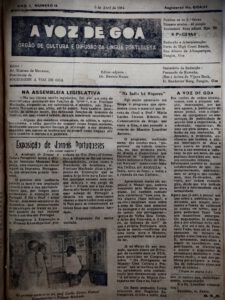
Não é difícil de imaginar os factores que foram desfavoráveis à língua portuguesa, no novo condicionalismo político em Goa. Encerrou-se O Heraldo com a brusca retirada do seu redactor principal, Álvaro de Santa Rita Vás, para Portugal; o antigo quinzenário A Índia Portuguesa, da direcção de Leonor de Loyola Furtado e Fernandes, além de obrigado a mudar o nome para A Índia, foi vítima de censura. Ainda mais significativo, porém, era o facto de o luso-falante ser ‘marcado com o ferrete de pró-português’[29]. Não admira, pois, que, por financeiramente inviáveis, se tenham fechado o Diário da Noite, em 1967, A Vida, em 1968, e A Índia, em 1976.
Não deixaram de aparecer, porém, novos periódicos: o mensário Globo[30] e o anuário Harpa Goesa, ambos fundados em 1968; o semanário Era Nova[31] e o quinzenário Ressurge Goa[32], ambos em 1970. Desapareceram esses quatro em questão de uma década, ficando só a Revista anual da Academia da Língua e Cultura Portuguesa (1981-85) e o antigo Boletim trimestral do Instituto Vasco da Gama (redenominado Menezes Bragança), ora bilíngue (1962-90).
Nada, porém, foi tão definidor como o desaparecimento de O Heraldo, em 1983, o qual, uns anos antes, o jornalista português Antunes Ferreira havia referido como ‘esse milagre de todos os dias’[33]. Lamentava o seu director, Carmo Azevedo, em um dos seus últimos editoriais, que era ‘verdadeira desgraça o único diário português da Índia acabar, quando o interesse pela Língua Portuguesa se desenvolve por todo o mundo.’[34]
‘Prevendo que esse jornal ia fechar – informa Fernando de Noronha – levámos um grupo de entusiastas a fundar um semanário: A Voz de Goa (Figura 2), com o subtítulo ‘órgão de cultura e difusão da Língua Portuguesa’.[35] Tinha como directores-editores Máximo de Meneses e Benício Nunes, e como secretário da redacção, o mesmo Noronha. Esse jornal de formato pequeno e de seis páginas era propriedade duma Sociedade homónima, expressamente formada. Com excepção de Nunes, médico, que fora director de O Heraldo, os promotores não eram profissionais da imprensa, mas indivíduos que sempre tiveram como meio de expressão o idioma luso.
A Voz de Goa foi o derradeiro representante da imprensa goesa em língua portuguesa. Teve boa aceitação, mas não deixou de ser objecto de crítica. Contava com uma vintena de colaboradores regulares[36] e mais de mil assinantes. Noronha, antigo funcionário público, que levava a peito a causa da língua portuguesa, iniciara, entre outras, a secção intitulada ‘Em Prol da Língua Portuguesa’. Observava um colunista do moribundo O Heraldo que para um jornal se chamar ‘a voz de Goa’ teria necessariamente de ser um jornal em concani. Além disso, Meneses, médico e proprietário, pela série de editoriais que escreveu sobre a reforma agrária, foi visto como promotor dos interesses da classe senhorial. Enfim, em menos de um ano, fechou essa empresa jornalística, ‘não só por razões de ordem financeira, mas também dada a idade avançada da maioria dos referidos entusiastas.’[37]
No segundo centenário do jornalismo goês, cabe lembrar a saga do primeiro ao último periódico da língua portuguesa em Goa. Se a Gazeta de Goa foi o iniciador da imprensa e impulsionador do idioma, A Voz de Goa quisera ser o agente difusor e foi, na verdade, o último herdeiro da imprensa luso-goesa centenária nesse território que, no dizer de Vimala Devi e Manuel de Seabra, era, em tempos, a ‘sede da difusão da cultura lusa no Oriente’.[38]
--------------------------------------------------------------------------------------------------------------------------------
[1] Cf. ‘Pressing Forward: The Story of Print in Goa,’ por Óscar de Noronha, in Commemorating Christ in Goa, ed. Isabel de Santa Rita Vás (Goa: Third Millennium, 2014).
[2] A máquina tipográfica, encomendada, para uso oficial, pela 1.ª junta provisional, que substituiu o Vice-rei Conde de Rio Pardo, chegou de Bombaim após a instalação da 2.ª junta provisional em 3 de dezembro de 1821.
[3] António Maria da Cunha, ‘A Evolução do Jornalismo na Índia Portuguesa,’ in A Índia Portuguesa (Nova Goa: Imprensa Nacional, 1923), Vol. II, p. 507. Note-se que também Macau adquiriu uma máquina impressora na mesma altura, vindo a publicar o primeiro número do periódico Abelha da China em 12 de setembro de 1822 (cf. Hélder Garmes, ‘Goa e Macau: às margens do macrossistema literário de língua portuguesa’, in Simas, Monica (Org.), Estudos sobre Macau e outros orientes (São Paulo: Paulistana, 2017), p. 176.
[4] Dentro de um ano foram publicados pelo menos 11 panfletos, cf. Rochelle Pinto, Between Empires: Print and Politics in Goa, (New Delhi: Oxford University Press, 2007)
[5] Em 14 de Janeiro de 1822, foram eleitos Bernardo Peres da Silva e Constâncio Roque da Costa, ambos nativos, e António José de Lima Leitão, reinol. Chegaram a Lisboa em 1823, precisamente quando o Rei Dom João VI, restaurando o governo absoluto, dissolvia as Cortes.
[6] Entrou em função por via de sucessão após a morte do 50.֯ vice-rei D. Manuel da Câmara (1825-1826).
[7] Cf. Portaria de 29 de agosto de 1826, in António Maria da Cunha, op. cit., p. 508.
[8] António Maria da Cunha, op. cit., p. 508.
[9] Aleixo Manuel da Costa, Dicionário da Literatura Goesa (Macau: Instituto Cultural de Macau e Fundação Oriente, s.d.), Vol. II, p. 30
[10] Henry Scholberg, Bibliography of Goa and the Portuguese in India, New Delhi: Promilla & Co. Publishers, 1982, p. 285.
[11] Liladhar Ramchandra Pendse, ‘19th Century Periodicals of Portuguese India: An Assessment of Documentary Evidence and Indo-Portuguese Identity’, 2013. https://escholarship.org/uc/item/9nm6x7j8
[12] O primeiro jornal da Índia Britânica, Hicky’s Gazette, data do ano de 1780.
[13] António Maria da Cunha, Ibid.
[14] Cf. Rochelle Pinto, op. cit., p. 122.
[15] Filinto Cristo Dias, Esboço da História da Literatura Indo-Portuguesa (Goa: Tipografia Rangel, 1963), p. 22.
[16] A este semanário, fundado e editado, em Margão, por Bernardo Francisco da Costa, seguiu, em 1861, A Índia Portuguesa, fundado por M. L. de Franco Miranda, em Orlim, concelho de Salcete, foi mais tarde editado por José Inácio de Loyola. Tornaram-se, respectivamente, órgãos dos partidos políticos Ultramar e Indiano.
[17] In O Heraldo, 10 de outubro de 1909, cit. por Filinto Cristo Dias, op. cit., p. 79.
[18] Fundado, em Pangim, por A. C. Messias Gomes e transformado em diário de língua inglesa, pelo novo proprietário, A. C. Fernandes, em outubro de 1983.
[19] Fundador e director: António Maria da Cunha, que de 1901 a 1908 dirigiu O Heraldo, de Pangim.
[20] Fundado, em Margão, por “seis burgueses” – como se referiam a si próprios os fundadores – Sales da Veiga Coutinho, Pedro Correia Afonso, António Colaço, Rosendo Barreto Xavier, Francisco Correia Afonso e Peregrino da Costa.
[21] Fundado e redigido, em Pangim, por A. X. Gomes Pereira.
[22] Fundado e redigido, em Pangim, por Luís de Meneses.
[23] Director e redactor: Luís de Menezes Bragança, em Pangim. Terminou em 1921.
[24] Sediado em Quepém, suspendeu-se em 1949, com a morte do seu Redactor, Govinda Hegdó Dessai.
[25] Fundado e redigido por Libério Pereira, em Margão, encerrou-se em 1935.
[26] De Pangim; fundado por Venctexa Sardesai e redigido por Luís de Menezes Bragança, até o último número, em 1937.
[27] Português-marata, concani-português, português-inglês.
[28] Francisco da Purificação Monteiro, ‘A história da imprensa portuguesa em Goa (1821-1963)’, in Revista da Casa de Goa, II Série, N.º 13, Novembro-Dezembro 2021, pp. 14-16; N.º 14, Janeiro-Fevereiro 2022, pp. 5-10; N.º 15, Março-Abril 2022, pp. 21-24.
[29] Fernando de Noronha, Goa tal como a conheci (Goa: Third Millennium, 2018), p. 101.
[30] Fundado, em Pangim, por António de Meneses, antigo redactor do Diário da Noite. Fechou em 1977.
[31] Fundado, em Pangim, por Carmo Azevedo, durou menos de um ano.
[32] Fundado por Telo de Mascarenhas, em Camurlim, concelho de Bardez; depois quinzenário, que fechou em 1979.
[33] ‘Goa em tempo de hoje’, Diário de Notícias, de Lisboa, 22-26 de novembro de 1980.
[34] Cit. por Fernando de Noronha, op. cit., p. 102
[35] Fernando de Noronha, ibid.
[36] Nos 46 números do semanário, colaboraram mais de 70 indivíduos, sendo os seguintes, na ordem do seu aparecimento, os mais assíduos: Filinto Cristo Dias, Bailon de Sá, José Rangel, Cyrano Valles, Pedro Lobo, Leão Pinto, Eduardo de Sousa, Álvaro da Silveira, Aires Martins, Domingos Teles, Alberto Cotta, Áureo de Quadros, Maria Julieta G. da Costa e Andrade, Carmo da Silva, Nicácio Dinis, Agapito Lourenço, Roberto Pacheco e Silva, Óscar de Noronha, J. Paulo Gomes, B. Furtado, Miguel de Miranda.
[37] Fernando de Noronha, ibid.
[38] Vimala Devi e Manuel de Seabra, A Literatura Indo-Portuguesa (Lisboa: Junta das Investigações do Ultramar, 1971), p. 131.
Publicado na Revista da Casa de Goa, Série II, No. 16, Maio-Junho de 2022, pp. 6-11
Strengthened by the Holy Spirit
With the Ascension and Pentecost round the corner, the role of the Holy Spirit has come into sharp focus. Today’s Gospel (Jn 14; 23-29) reminds us that Jesus at the Last Supper had assured His disciples that they would not be orphaned; He would remain for ever in their midst through the Holy Spirit: ‘The Counsellor, the Holy Spirit, whom the Father will send, he will teach you all things, and bring to your remembrance all that I have said to you.’
It is reassuring to have such a Paraclete – Advocate, Helper, Comforter, Intercessor; it is equally heartening that Jesus promises a close relationship with whoever loves Him and keeps His Word. But what does it mean to love Jesus? It means doing the will of His Father. And what is His Father’s will? It comprises all that He has decreed in love and is now found in Church teaching and sacred Tradition.
Amor vincit omnia: love conquers everything. Love is indeed a harbinger of peace – which is priceless when it comes from Jesus! It is a peace ‘not as the world gives’, and so, irreplaceable. The Lord’s peace is not an insurance policy that promises 'peace of mind'; it is rather a state of being that comes about from knowing who we are, why we are here and what is our final destination. It is a peace that comes from having the right priorities: putting God above all people and all things. It is a peace that comes from making God the centre of our lives. One of my favourite hymns says it all: ‘No one can give to me that peace which my Risen Lord, my Risen King, can give.’
It is clear from the First Reading (Acts 15: 1-2, 22-29) that the first Christians depended on the Holy Spirit for guidance, and they practised love and peace. Of course, it was never a smooth ride: despite the indwelling of the Holy Spirit, the community witnessed infighting. But what is marvellous is that they resolved their conflicts in love and peace; through consultation, dialogue, consensus.
 Consider that thorny issue of whether or not pagans had to go through the rituals of Judaism (e.g. circumcision for male converts) before they embraced Christianity. Paul and Barnabas consulted the Apostles and elders back in Jerusalem. After they had found a feasible solution, at what came to be called the first council of Jerusalem, they were quick to reach out to their brethren in Antioch, Syria and Cilicia: they did not impose circumcision upon the catechumens of both Jewish and pagan origin, but they encouraged them, with due reason, to abstain from what was sacrificed to idols; from blood and what was strangled; and from unchastity.
Consider that thorny issue of whether or not pagans had to go through the rituals of Judaism (e.g. circumcision for male converts) before they embraced Christianity. Paul and Barnabas consulted the Apostles and elders back in Jerusalem. After they had found a feasible solution, at what came to be called the first council of Jerusalem, they were quick to reach out to their brethren in Antioch, Syria and Cilicia: they did not impose circumcision upon the catechumens of both Jewish and pagan origin, but they encouraged them, with due reason, to abstain from what was sacrificed to idols; from blood and what was strangled; and from unchastity.
It is obvious that the Apostles and the elders exercised great pastoral care. Later, this model of social, emotional and spiritual support became integral to evangelisation of prospective converts and neo-converts the world over (including Goa, way back in the sixteenth century). The Holy Spirit became an instrument of the Lord’s peace: where there was hatred, he sowed love; where there was injury, pardon; where there was doubt, faith; where there was despair, hope; where there was darkness, light; where there was sadness, joy. After all, peace, love and joy are among the many fruits of the Holy Spirit.
Finally, from the Second Reading (Rev 21: 10-14, 22-23) we understand that with Emmanuel (God with us) and the fruits of the Holy Spirit we come close to Heaven, which is the new and eternal Jerusalem. The angel showed St John a holy city perched on a high mountain. There was no temple in the city: ‘its temple is the Lord God the Almighty and the Lamb’. There was no more sun and moon: the glory of God was its light, the Lamb its lamp. This is where we all belong; our citizenship lies in Heaven. What a privilege!
Who can deny that our Christian identity is a privilege? But, at the same time, privilege entails responsibility – noblesse oblige! Thus, we are called to be temples of the Holy Spirit, the salt of the earth and the light of the world. We are called to pray for peace in our personal lives and in the world. As a spiritual exercise, it would also be a good idea to identify places that are in need of liberation from the scourge of sin and evil; and when we exchange a sign of peace at Mass, dearly wish that the peace of Jesus be always present in our hearts and minds. To crown it all, let us make the eternal city the goal of our earthly pilgrimage, with the Holy Spirit as our Guide.
Doing everything in love
Why would a Francis Xavier or a Joseph Vaz travel as far as they did, renouncing every comfort and honour? Despite the distance of time, their life journey, or even that of a missionary in contemporary India, is so evocative of the efforts put in by the early church leaders. At that time, there were no appropriate church buildings, trained clergymen, schools, parishes, or even literature. The New Testament had still not been put together, so, the apostles had to draw lessons from the Jewish books, discover in them a sign of Christ, and teach accordingly. The untiring apostles would be on their beat, nurturing the communities that they had set up in love.
In the First Reading (Acts 14: 20-26), Paul and Barnabas travelled far and wide, strategized, and most importantly, persevered. They kept in touch with the neo-converts, either by meeting or writing to them; they prayed intensely and planned carefully; they appointed leaders (the future church hierarchy), exchanged views, and exhorted everyone to keep the faith even in the face of trials and tribulations. This Sunday marks their return journey from the last mission station (Derbe). Francis Xavier did likewise in Goa, in South India and in the Far East; Joseph Vaz in Goa, Kanara and Sri Lanka; and even today every missionary treads a tough path in the service of our Lord and Saviour.
 Unlike the past, today we are blessed with print and digital technology, especially our cell phones and social media; we have speedy transport systems, vast bodies of knowledge, human and material resources. But, come to think of it, how well do we make use of them to spread our faith? How well do we spend our time, physically and virtually, feeding our souls with spiritual food? It is high time we tamed such technology lest we should be overpowered by it; it is high time we became beacons of hope to the other, fulfilling Our Lord's mandate.
Unlike the past, today we are blessed with print and digital technology, especially our cell phones and social media; we have speedy transport systems, vast bodies of knowledge, human and material resources. But, come to think of it, how well do we make use of them to spread our faith? How well do we spend our time, physically and virtually, feeding our souls with spiritual food? It is high time we tamed such technology lest we should be overpowered by it; it is high time we became beacons of hope to the other, fulfilling Our Lord's mandate.
Meanwhile, it is very sad that some of us have become slaves to a brave, new world of our own making. We have moved away from our Creator and seem lost in our petty creations. The world that God has presented us with stands physically degraded and morally defiled. In these circumstances, we have no option but to wait for a new earth. As the Second Reading (Rev 21: 1-5) says, by and by, the heavenly Jerusalem will come down and God will dwell in our midst (Emmanuel); and, marvel of marvels, suffering and death shall be no more. God’s children will delight in Him, for the tone that He sets is called Love.
When will St John’s beautiful vision come true? This will happen only after the Judgement and the final victory over the forces of evil thought to reside in the sea (Rev 20: 11-15)! Then will come a new heaven and a new earth – a new spiritual and material universe. In a way, they have been realised in the Risen Body of Christ. Even if by its power the Resurrection has not totally eliminated evil, it has no doubt changed the world for the better, thanks to the Lord's commandment of Love. His is an old commandment made new: 'Love your neighbour as you love yourself' has been tweaked to 'Love your neighbour as I have loved you'. That has made all the difference!
Finally, Christ’s Second Coming will be the golden key to our understanding of the mystery of Salvation. We have to bide our time. We cannot go where the Master has gone, do what He has done, endure what He has endured; but we can try and love one another as He has loved us, and by our love show others we are Christians. This is not a boast meant to exclude but a magnet meant to attract them to the fold. It is an interior movement of the mind and heart, marked by prayer and fasting, blessing and self-entrusting to God. Needless to say, there will be heartaches, failures, but there will also be consolations and successes. To serve God, we must be ready, to borrow a stanza from ‘The Sound of Music’, to ‘climb every mountain, search high and low, follow every byway, every path we know…’
After all, that is our vocation and our mission. How fondly I remember my catechism book, which said, ‘Why has God made me?’; and then that delightful response of the catechumens in unison: ‘God has made us to know Him, love Him, serve Him, and be happy with Him for ever’!
We are indeed a privileged lot – so, let’s proclaim the Good News from the rooftops. Let’s not hide the light under a bushel – let’s put it on a lampstand, that all may see. Let’s make known His mighty deeds and the glorious splendour of His reign, just as the first Christians did – freely, frankly, fearlessly, and in love!
O Popular Príncipe da Poesia Concani
May 11, 2022Translation,Goan Literature
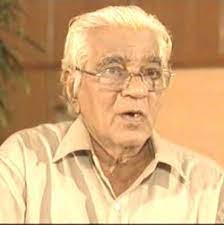 ManoharRai SarDessai (1925-2006) foi professor de Francês nas universidades de Bombaim e Goa; editor de vários periódicos literários; presidente da conferência pan-indiana do Concani; tradutor de obras literárias e históricas; mas, acima de tudo, um dos maiores e mais queridos poetas da língua concani, graças à elegância da sua linguagem e à relevância dos temas que tratava.
ManoharRai SarDessai (1925-2006) foi professor de Francês nas universidades de Bombaim e Goa; editor de vários periódicos literários; presidente da conferência pan-indiana do Concani; tradutor de obras literárias e históricas; mas, acima de tudo, um dos maiores e mais queridos poetas da língua concani, graças à elegância da sua linguagem e à relevância dos temas que tratava.
SarDessai é tanto goês como cosmopolita, tanto príncipe quanto homem do povo. Nas suas palavras, ‘Hanv Gõycho ani Gõyam bhailo, udenticho ani ostomtecho: Sou de Goa e do além; sou do Leste e do Oeste’.
A sua poesia tem a toada da palavra falada. Foi, sem dúvida, feliz a sua ideia de passar a escrever em concani, sua língua materna além de lngua da terra, quando, aliás, a comunidade hindu prezava o marata como a sua língua de cultura.
Afirma o Poeta Madhav Borcar que a poesia de SarDessai divide-se em dois períodos: pré- e pós-1961, sendo este o ano da integração de Goa na União Indiana.[i] Neste período foi um dos responsáveis, junto com R. V. Pandit e C. F. Costa, por lançar as raízes da nova poesia concani.
Goyãm, tujea moga khatir [Por teu amor, ó Goa!] (1961) abarca, principalmente, a poesia que escreveu durante a estadia na França (1952-58).[ii] Fala com saudade das vozes e paisagens da terra natal e das alegrias e tristezas da vida campestre. Não admira que o seu lirismo tenha atraído a geração contemporânea de literatos.
Regressando de vez a Goa, teve várias intervenções na vida pública. O seu livro Zaiat Zage (1964) é uma forte expressão do seu sentido cívico.[iii]
É particularmente memorável a sua intervenção no destino político da sua terra aquando do histórico Opinion Poll (escrutínio da opinião), realizado em 1967: pôs todo o seu peso a favor da autonomia de Goa contra os planos integracionistas do estado vizinho do Maharashtra. Alguns dos seus mais patrióticos poemas datam desse período, altura em que eles estavam sempre nos lábios da gente.[iv]
SarDessai dirige-se ao grande público com facilidade, graças ao seu dom das línguas: exprime-se em concani, marata, francês e inglês, às vezes, traduzindo ele próprio os seus poemas. Mais significativo, porém, é o Poeta se ter tornado acessível ao público goês, a partir do ano de 1961, pois a escolha do alfabeto e a multiplicidade de dialectos os dividia. Fez questão de escrever em caracteres latinos e devanagáricos, construindo uma ponte entre os falares das comunidades hindu e cristã – como que uma língua franca.
Os poemetos de Zaiô Zuiô [Jasmim] (1970) e Pissolim [Borboletas] (1978) são caracterizados pela economia e precisão vocabular (cinco a sete versos). Ao segundo livro de poesia foi atribuído o Prémio da Sahitya Akademi (Academia indiana de Letras), em 1980.
SarDessai escreveu também poesia para crianças, sendo ‘Bebeanchem Kazar’ [O casamento dos sapos] o seu poema mais popular, pela rima e ritmo.
De igual modo, produziu poemas de louvor a Jesus e Maria. [v]
Os três poemas incluídos neste artigo falam do seu amor à terra e da sua filosofia da vida[vi] Na ‘Oração’, diz com toda humildade: ‘Que a minha aldeia se orgulhe/dos meus feitos, do meu nome,/ tanto basta para mim,/não almejo outro renome.’ Colheu, porém, muito mais: além da afeição do povo, os epítetos Lok Kovi[vii] (Poeta do Povo) e Konknni Kovirai[viii] (Príncipe dos Poetas concanis).
Gõycho Ambo
Gõycho ambo
Mhonva thembo
Gõychea polear
Bhangra tibo.
Gõychea ambeant
Chandnem asa
Suriachem kirnn asa
Amchea mogall zomnintlea
Amrutacho kollso asa
Zaia-zuiam poros dhatt
Gõychea ambeak ghomghomat
Bhurgeachea galaporos
Gõycho ambo rosroxit
Vhonklechea onttaporos
Gõycho ambo lusluxit
Halot, dholot, lozot, moddot
Pachvo podor angar gheta
Sotravem vors futtun
Gõychea ambeant rupak ieta.
Gõycho ambo rosall kovit
Gõycho ambo Gõychem jivit.
A manga de Goa
A manga de Goa
Um pingo de mel,
Um bocado de oiro,
A Manga de Goa.
Um disco da Lua,
uma réstia de Sol,
a Manga de Goa.
Um bouquet de champôs
e de cravos rubros,
a Manga de Goa.
Mimosa
como a face de uma criança,
Voluptuosa
como os lábios de uma noiva,
nossa riqueza,
nosso orgulho,
a Manga de Goa.
Sob o verde véu,
como o seio de uma virgem
na flor dos anos,
entre tímido e ousado,
a Manga de Goa.
Um poema de sumo,
Uma lasca de alegria,
a Vida de Goa,
A Manga, pomo de oiro.
(Traduzido por Carmo Azevedo) [ix]
Gõy mhojem
Gõy mhojem vhonkol koxi
Panchvea chuddean bhol’leli
Gõy mhojem rat nilli
Noketranim ful’leli.
Gõy mhojem bhurgem koxem
Dongramche manddiecher
Gõy mhojem mogre-kollo
Doriache talliecher.
Gõy mhollear chitr ek
Indradhannun rongoil’lem
Gõy mhollear sop’n ek
Ugddasani vinnlelem.
Gõy mhojem kuberachea
Vozranchi ukti kudd
Gõy mhollear jivitachea
Zoitachi zollti chudd.
Gõy mhollear pavl ek
Dortorechi vatt mezpi
Gõy mhollear tan ek
Vixvacho tal sodpi.
Gõy mhollear konvlli odd
Kallzantlea kavteachi
Gõy mhojem vhoddli zodd
Zolmachea punneachi.
Minha Goa
Minha Goa é como uma noiva
de pulseiras enfeitada.
Minha Goa é noite azul
de estrelas matizada.
Minha Goa é como criança
entre montes passeando.
Minha Goa é botão de flor
à tona do mar vogando.
Goa é um painel
pelo arco de Indra colorido.
Goa é um sonho
de memórias tecido.
Minha Goa é corpo aberto
de riqueza diamantina.
Goa é um facho ardente
duma vida vitorina.
Goa é uma pegada
que os caminhos vai medindo.
Goa é sede sempre em busca
do fundo do mundo infindo.
Goa é ânsia juvenil
do âmago do coração.
Grande é o mérito de quem tem
de em Goa nascer o condão.
(Traduzido por: Jorge de Abreu Noronha)[x]
Magnnem
Sompem utor, saral mon
Itlem mhaka mellchem dhon.
Tambddo patt, pachvem pan
Itlo mhaka puro man.
Svarthachi virchim kupam
Itli mhojer korchi krupa.
Mhaka lagun ful’lo ganv
Itlem mhaka puro nanv.
Oração
Palavra de leveza
e mente sem paleio,
é isto o que eu anseio
como única riqueza.
De rubro lenho um banquinho,
folha verde de banana,
nenhum outro preito espero
ao longo do meu caminho.
Que se esvaiam no horizonte
essas nuvens de ganância:
seja apenas esta a graça
a adornar a minha fronte.
Que a minha aldeia se orgulhe
dos meus feitos, do meu nome,
tanto basta para mim,
não almejo outro renome.
(Traduzido por Jorge de Abreu Noronha)
——————————————————————————————————————————–
[i] Madhav Borcar, ‘Manoharraiali Kovita’, in Atthara Jun (Panaji: Goa Konkani Akademi, 2007), p. 160.
[ii] Doutorou-se na Sorbonne, apresentando a tese intitulada ‘Image de l’Inde en France’, cf. Edith Noronha Melo Furtado, Les Oeuvres de Manohar Rai Sardessai: Point de Rencontre entre l’Inde e la France (Delhi: Goyal Publishers and Distributors Pvt Ltd, 2014).
[iii] De entre outros poemas, escreveu ‘Hi Lokshay’ [Esta democracia], ‘Hundranchi sabha’ [Assembleia de Ratos], que ora fazem parte da antologia Atthara Jun, op.cit.
[iv] Entre outros, ‘Zaiat Zage’ e ‘Ailo Poll’ [Lá vem o Escrutínio].
[v] Entre outros, ‘Ball Jezu Zolmolo’ [Nasceu o Menino Jesus], ‘Khursachi Kanni’ [A História da Cruz], ‘Mhozo Jezu ailo porot’ [Voltou o meu Jesus], ‘Mari Matêk Ballok Zala’ [Teve um Menino a Mãe Maria]; e ainda em homenagem ao S. José Vaz: ‘Khõi Pavlo? Khõicho tum?’ [Donde vens? P’ra onde vais?]. Cf. My Song – Ma Chanson – O meu Canto (Goa: 2008).
[vi] Da escolha de Maya SarDessai, filha do Poeta, a quem agradeço; tirados da colectânea My Song – Ma Chanson – O meu Canto, op. cit.
[vii] Atribuído por Bakibab Borcar, outro gigante da poesia concani.
[viii] Título que lhe foi conferido no concurso de poesia concani inédita, realizado no Clube Nacional, de Pangim, em 2 de janeiro de 1966 (Cf. ‘Prefácio’ de Maria Aurora Couto, ao livro My Song – Ma Chanson – O meu Canto, op. cit., p. 119).
[ix] Carmo Azevedo (1912-2003) foi médico, jornalista e investigador de história e arte goesas.
[x] Jorge de Abreu Noronha (1930-2007), um goês radicado em Portugal, foi um dos principais promotores da ideia de publicar o volume trilíngue (Minha Canção – Ma Chanson – O meu Canto) dos poemas de SarDessai.
Publicado na Revista da Casa de Goa, Serie II, No. 16, Maio-Junho de 2022, pp 38-41. II Série – N.º 16 – Maio/Junho de 2022 – Casa de Goa
Let the whole world know
It warms the cockles of our hearts to watch two great giants in the marvellous project of evangelisation: Peter and Paul. While Peter speaks to the Jews in particular, Paul reaches out to the Gentiles. Luke devotes to them the greater part of the ‘Acts of the Apostles’, a book carved out from his Gospel. From there is taken the First Reading of all the Sundays of Easter until Pentecost Sunday. The book's second half (chapters 13-28) covers three missionary journeys that Paul undertook, between A.D. 46-48, to Asia Minor (major part of modern-day Turkey), to Greece, and finally to Rome, which was the heart of the Gentile world.
The Jews, entitled to travel throughout the Roman Empire, would seek and speak to other Jews in any important city they visited. For instance, in Antioch of Pisidia, Paul and Barnabas, a prominent early, Jerusalem Christian of Cypriot Jewish extract, visited the Jewish community at their sabbath gatherings in the synagogue. Out of deference to him as a visitor, they asked Paul to be the commentator of the day. Paul seized the opportunity to highlight a series of facts that not only give Jewish history its meaning but also clearly point to Christ. Paul showed that God’s promises to Israel were fulfilled in the Resurrection.
What Paul spoke on the following Sabbath forms the crux of today’s First Reading (Acts 13: 14. 43-52). This time, Paul did not address the Jews alone but all the God-fearing, including non-Jews. This approach achieved three things: it proved that Paul was no racist; it brought hope to the Gentiles; and it precluded the Jews from feeling superior to others, in the belief that only they were worthy of hearing God’s word and being called His children.
From the people’s response it is evident that they were thirsting to hear the Good News. The following sabbath they brought along other pagans. Although such progress aroused jealousy, revilement and persecution from the Jews, the inspired duo did not cower down. Behold their parting shot: ‘It was necessary that the word of God should be spoken first to you. Since you thrust it from you, and judge yourselves unworthy of eternal life, behold, we turn to the Gentiles. For so the Lord has commanded us.’ And then, Paul and Barnabas shook off the dust from their feet and went out to the uttermost parts of the earth.
For his part, John, on account of his faith, was deported to Patmos, a Greek island in the Aegean Sea, around the year A.D. 95. The youngest of the Lord’s apostles, he died thereabouts in his mid-nineties. The place is now famous as the location where the Evangelist received the visions that we read about in the Book of Revelation. Here he addresses Christians suffering for the faith, in imitation of Christ.
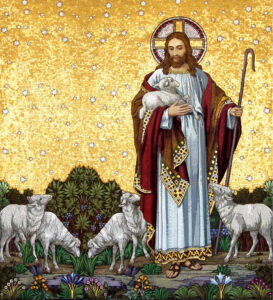
Seeing how the Jews as a whole did not accept Jesus, the apostles’ effort might have seemed a complete failure. John, however, has an optimistic vision. The ‘four angels’ he refers to earlier in the chapter refers to the elect, or say, the Jews who followed Jesus as well as those who did not believe in Him, through no fault of their own, but who were saved through His Death and Resurrection. ‘A great multitude which no man could number, from every nation from all tribes and peoples and tongues, standing before the throne and before the Lamb’ thus points to the incredible success of the salvation of humanity.
Are the ones who will be saved always those ‘who have come out of the great tribulation’, that is, martyrdom? Obviously, not all will die as martyrs, but Christians should have continually before their eyes those who have died for the faith. By God's grace, those who serve Him night and day will hunger and thirst no more; He who sits upon the heavenly throne will shelter them and wipe away every tear from their eyes. That is to say, the Lamb of God will double as their Shepherd and guide them to springs of living water.
This is precisely the theme of the day's Gospel (Jn 10: 27-30). Jesus the Son of God is the ‘Good Shepherd’ who promises his sheep eternal life. His flock is not synonymous with the Jewish nation or any other; it is those who believe in Him that comprise His flock. He invites people from different nations or civilisations; they will recognise His voice and believe in His Word. This being the focus of the fourth Sunday of Easter, aptly called ‘Good Shepherd Sunday’, all three lectionary cycles draw from the same chapter of John.
Thus, the Readings of today dwell on the messianic role of Jesus: He is the Lamb of God; He is the Good Shepherd; He is the Bread and Water of Life; He is our Saviour. Those who believe in Him and follow Him will be saved. This is a message that we are duty-bound to spread with passion and conviction, letting the world know that Jesus is Lord of the Universe and our most precious Saviour.
Called to give witness to Christ
We can see the wonders that the Lord has made; we can see the Holy Spirit at work.
In the First Reading (Acts 5: 27-32, 40-41) the Apostles are a transfigured lot, full of courage and enthusiasm. Questioned a second time by the high priest, they give a spirited and gutsy witness about the Risen Lord. Peter, clad with the authority imparted by the Master, proclaims His Death and Resurrection. Equally important, to those who have eyes to see and ears to hear, Peter makes known that Jesus Christ is in their midst, in flesh and blood, as the Lord and Saviour of the world.
It is truly heartening to know that Jerusalem was filled with the Apostles’ teaching: today, we are called to do the same around us, in the cities and villages we live in. The Apostles steadfastly brought the Good News to their people, Israel: who could deny the Passion, Death and Resurrection of our Lord? In a bid to disown their part in the brutal killing of Jesus, the authorities sheepishly urged the preachers not to speak in His Name, and they let them go. For their part, the Apostles were ever-ready to ‘suffer dishonour’ – a death like His – for His sake.
What did the Apostles go ahead and preach, they who until yesterday seemed shaky, weak and tired? In one word, they simply gave witness to their faith. What is reported in verses 29-32 is a summary of the apostolic preaching, pointing to its most essential elements, a rough-and-ready reckoner for us. This should be the posture of every committed Christian: to continue in Peter’s footsteps, proclaiming Jesus in good times and in bad; to obey God rather any human authority. Indeed, all of this makes up the life of the Church and what we are called to be and do as Christians!
 Not only was the earthly Jerusalem filled with echoes of Jesus’ Holy Name; from the Second Reading (Rev 5: 11-14) it is clear that there was rejoicing in the New and Eternal Jerusalem as well. St John heard the voice of angels singing, ‘Worthy is the Lamb who was slain, to receive power and wealth and wisdom and might and honour and glory and blessing!’ And every creature in heaven and on earth, under the earth and in the sea repeated the praises, saying, ‘Amen!’ Which means that, upon His Resurrection, the whole of creation joyfully veered towards Him who is the Lord of Heaven and Earth, the centre of all creation.
Not only was the earthly Jerusalem filled with echoes of Jesus’ Holy Name; from the Second Reading (Rev 5: 11-14) it is clear that there was rejoicing in the New and Eternal Jerusalem as well. St John heard the voice of angels singing, ‘Worthy is the Lamb who was slain, to receive power and wealth and wisdom and might and honour and glory and blessing!’ And every creature in heaven and on earth, under the earth and in the sea repeated the praises, saying, ‘Amen!’ Which means that, upon His Resurrection, the whole of creation joyfully veered towards Him who is the Lord of Heaven and Earth, the centre of all creation.
Is Jesus the centre of our lives? Are we geared up to repeat the sounding joy? Given that the imprint of God’s law is in our hearts, as St Paul says, we should be continually praising Him in word and deed. Our hearts should be restless until they rest in Him. Here, I remember what my dear Avó (grandmother) used to say: ‘When we see God face to face one day, it is only Him and none else that we shall contemplate.’ Let’s look forward to that day when we will be at least palely worthy of such a privilege!
Holy privileges come our way as we journey on our earthly pilgrimage. In the Gospel (Jo 21: 1-19), after preparing the disciples, by means of the miraculous catch, which was carried out under Peter’s leadership and in his boat, Jesus indicates that Peter will be the Shepherd of His only flock from the moment Jesus departs and until His Second Coming. Peter would shoulder the responsibility of the first Church; he who was a mere fisherman was called to be a fisher of men.
That Jesus showed up on the beach, unannounced, while some of the disciples were about to go fishing, simply means that an encounter with the Lord can happen anytime, anywhere, anyhow. He met them on the lonely shore in the light of dawn; where will He meet us? Jesus asked Peter if he loved Him; what about us? Do we love Him and Him alone, or is He just one among many? And then, when He says, ‘Follow me,’ will we readily do so? We may not be called to lead, but are we ready to follow? The life of the Church and our own salvation hinges on our response.

